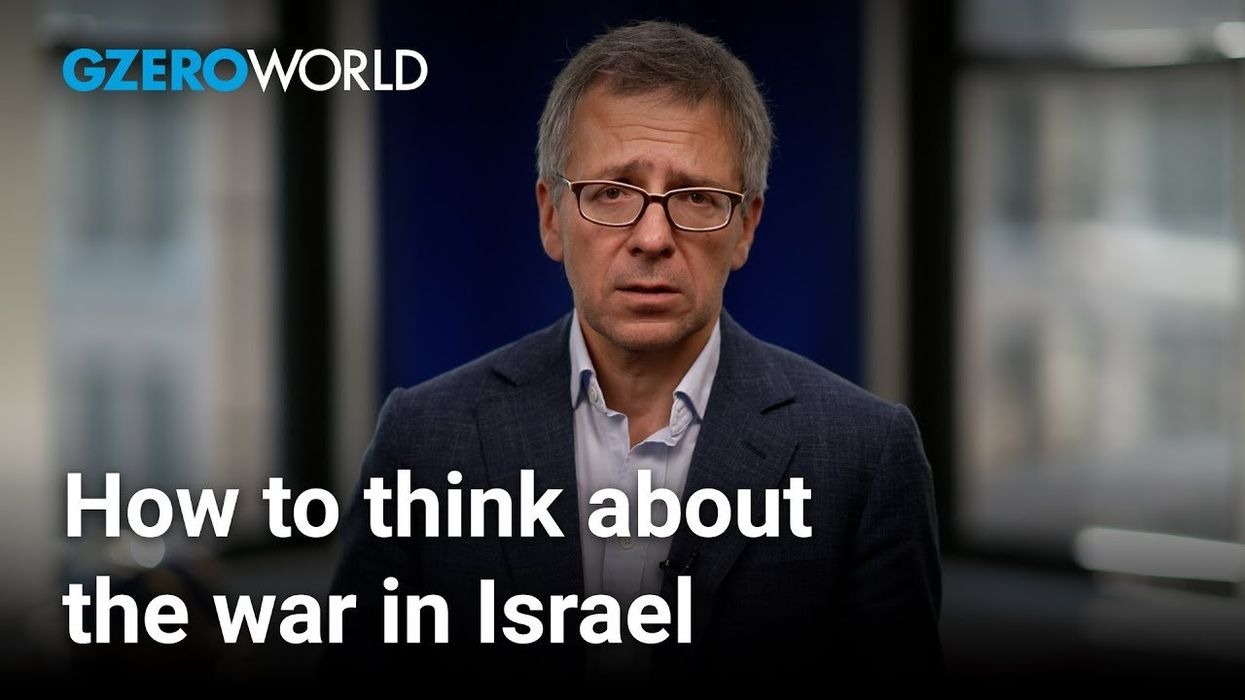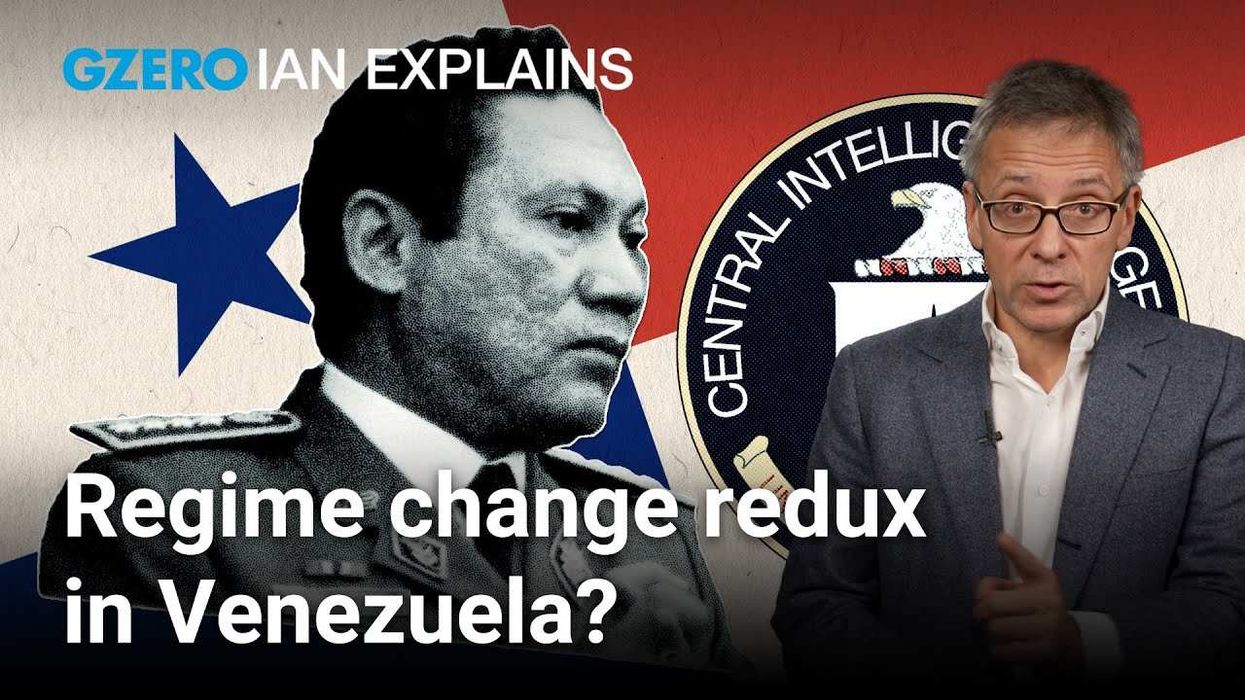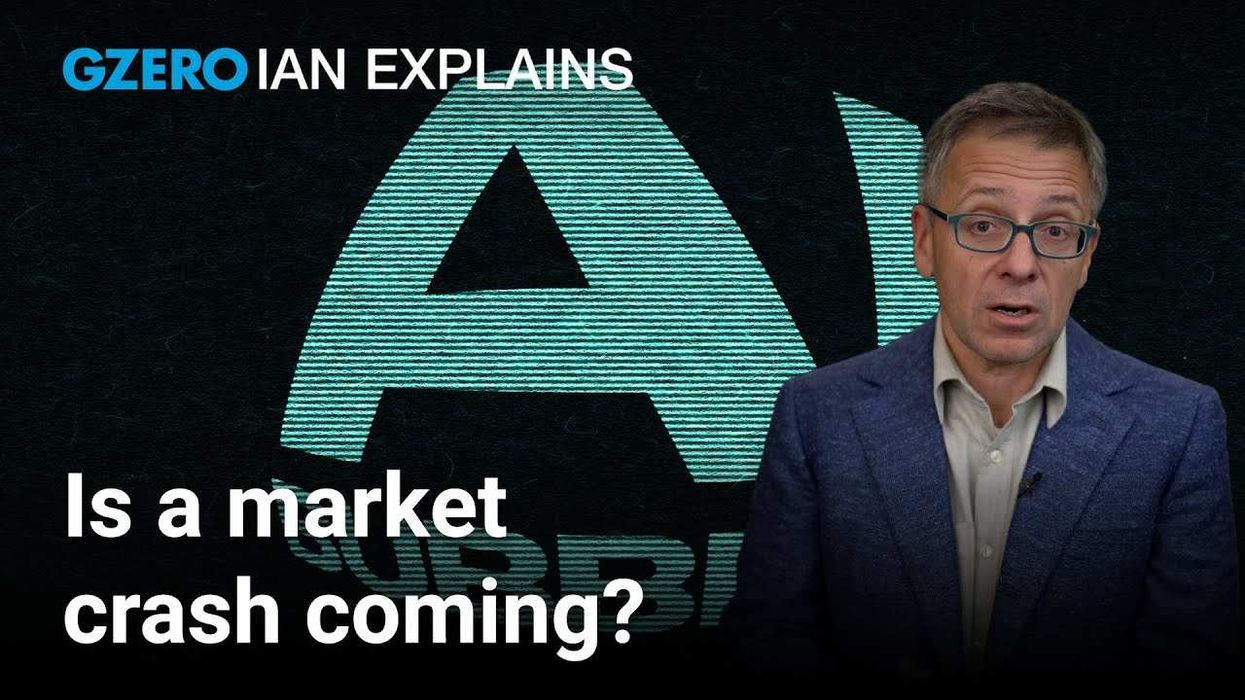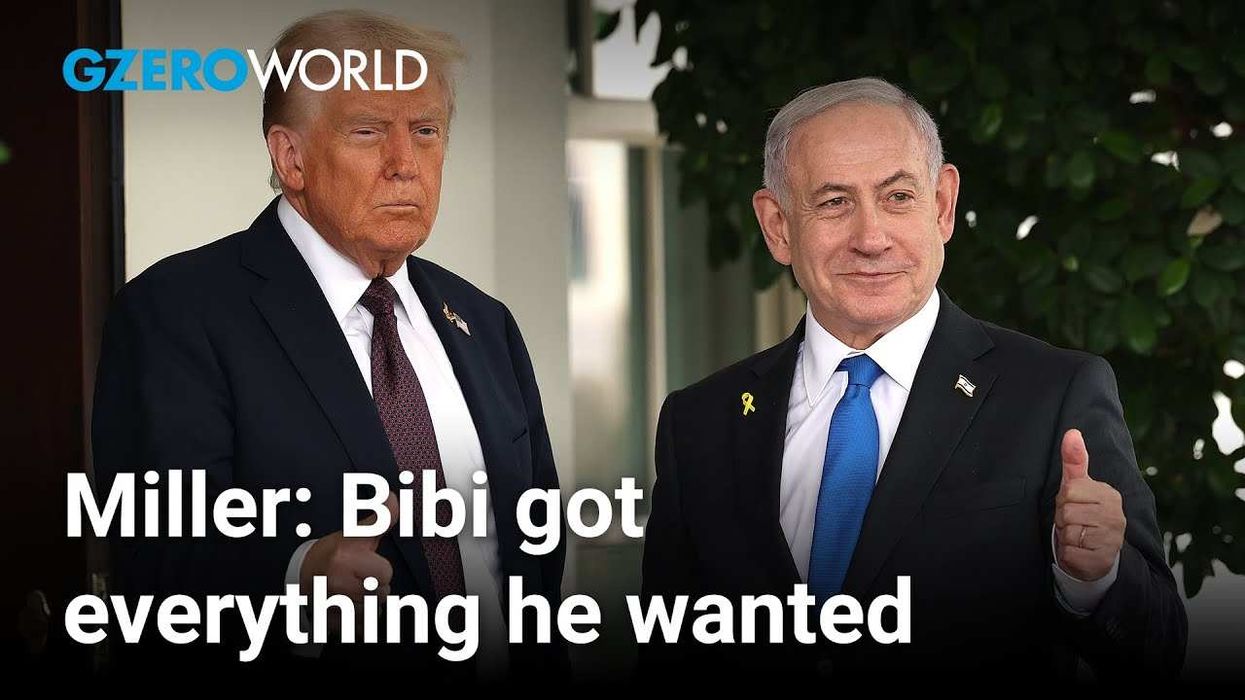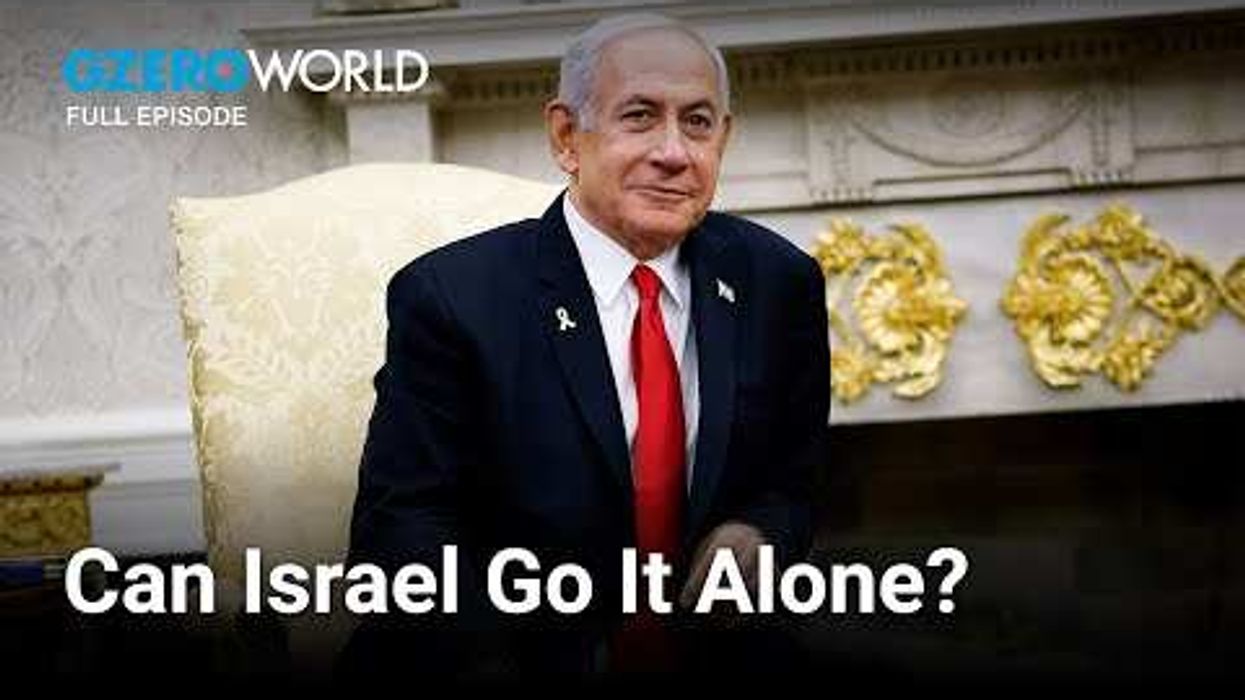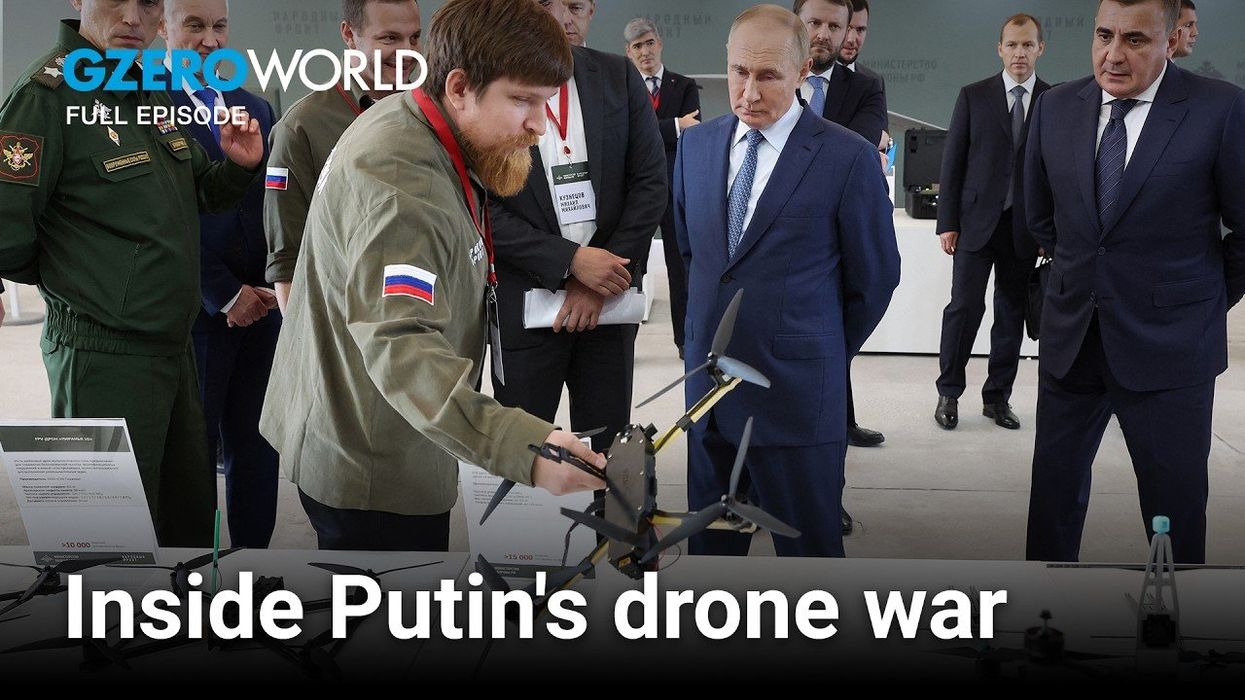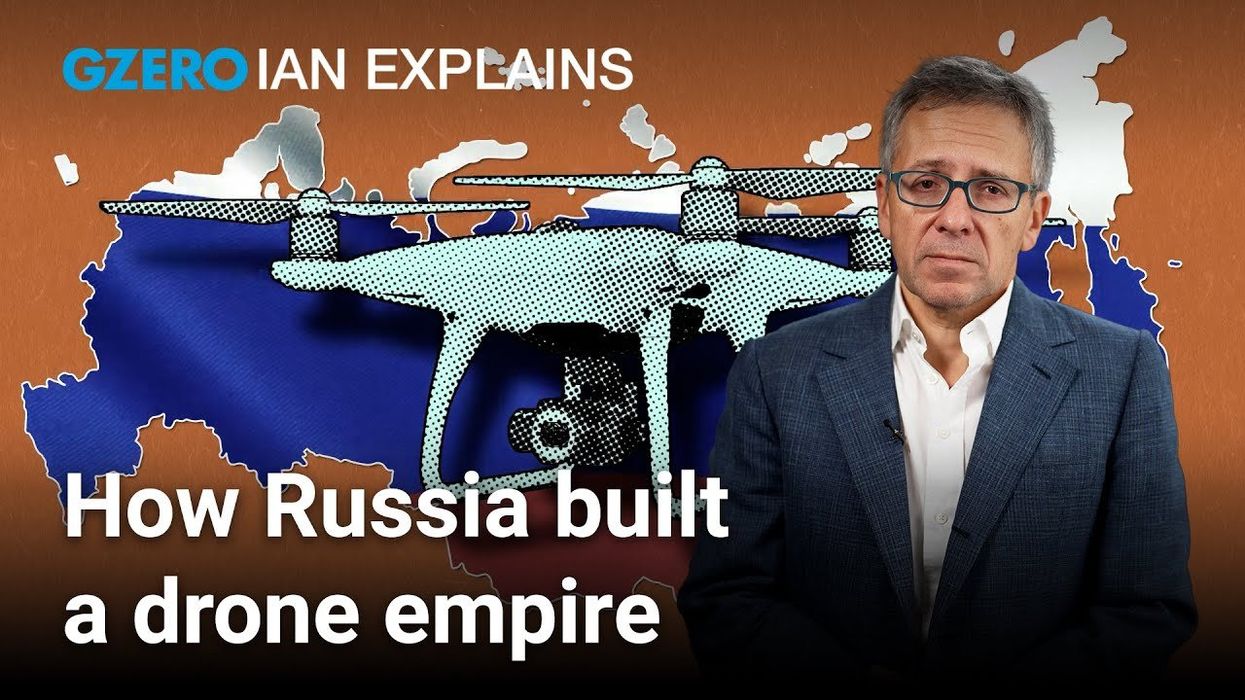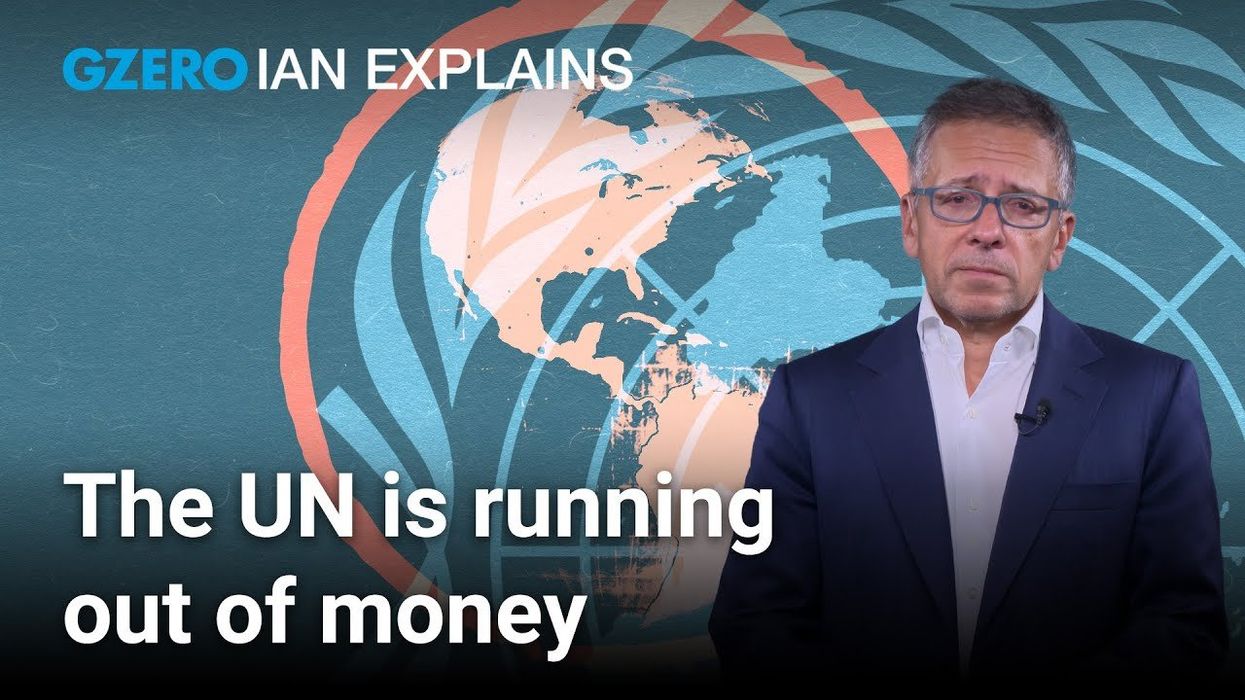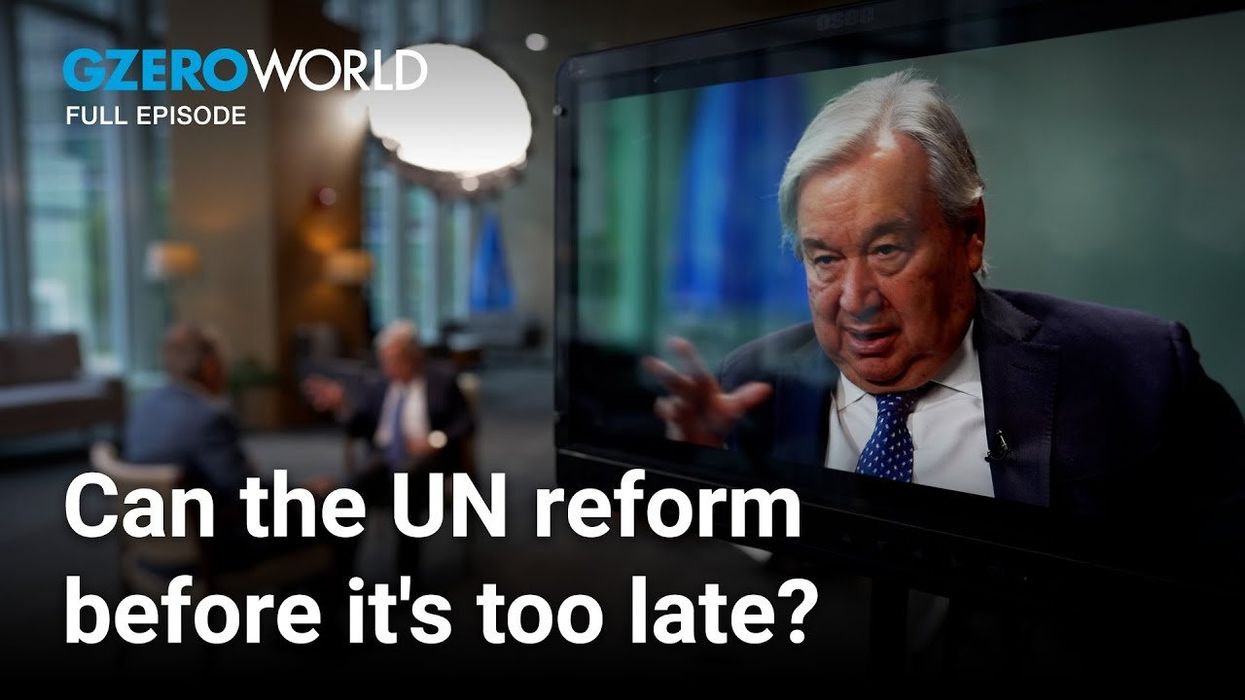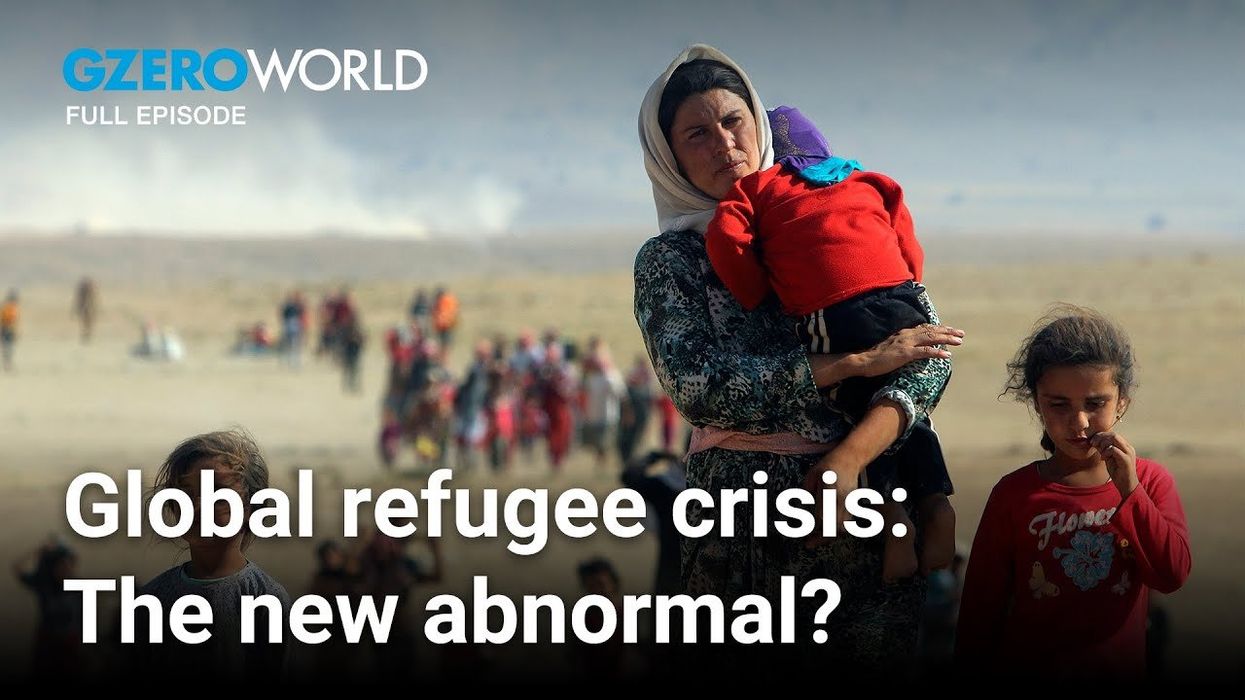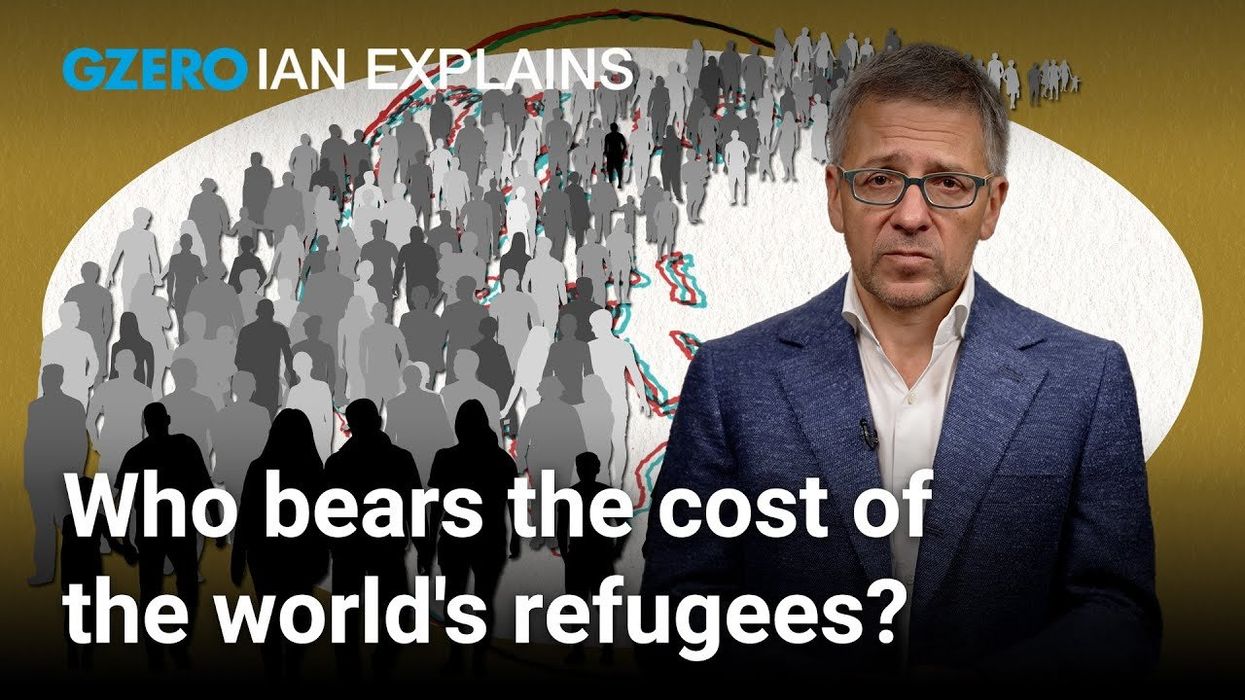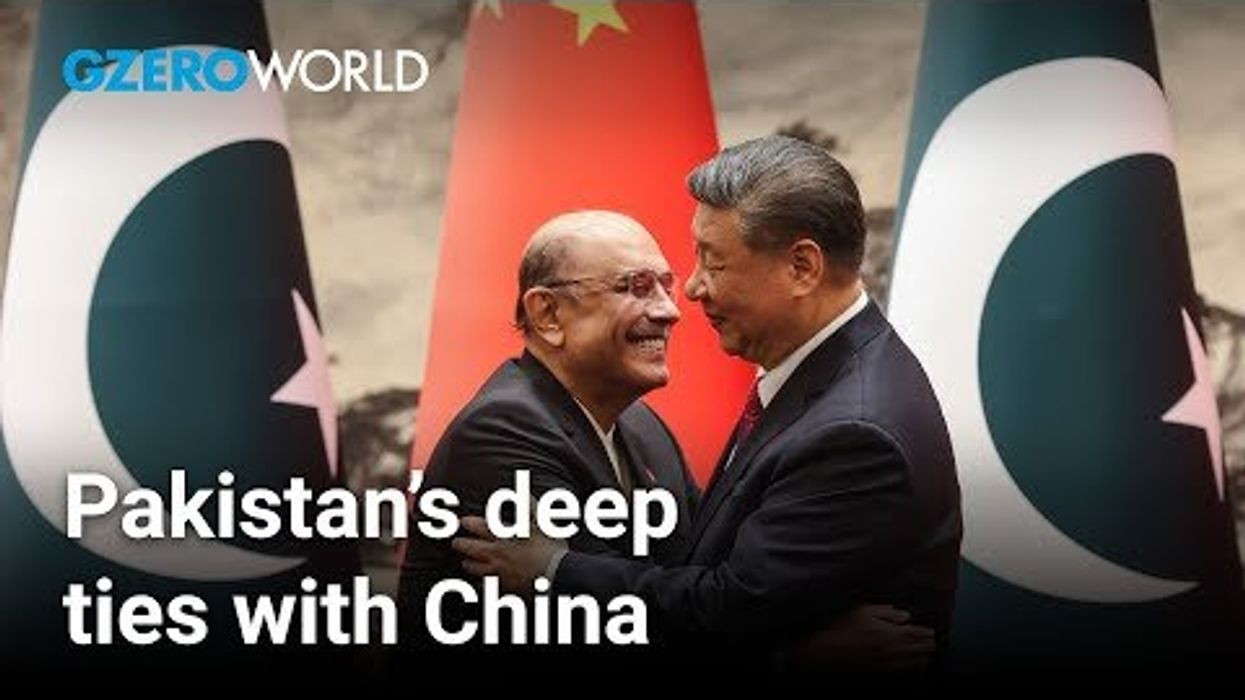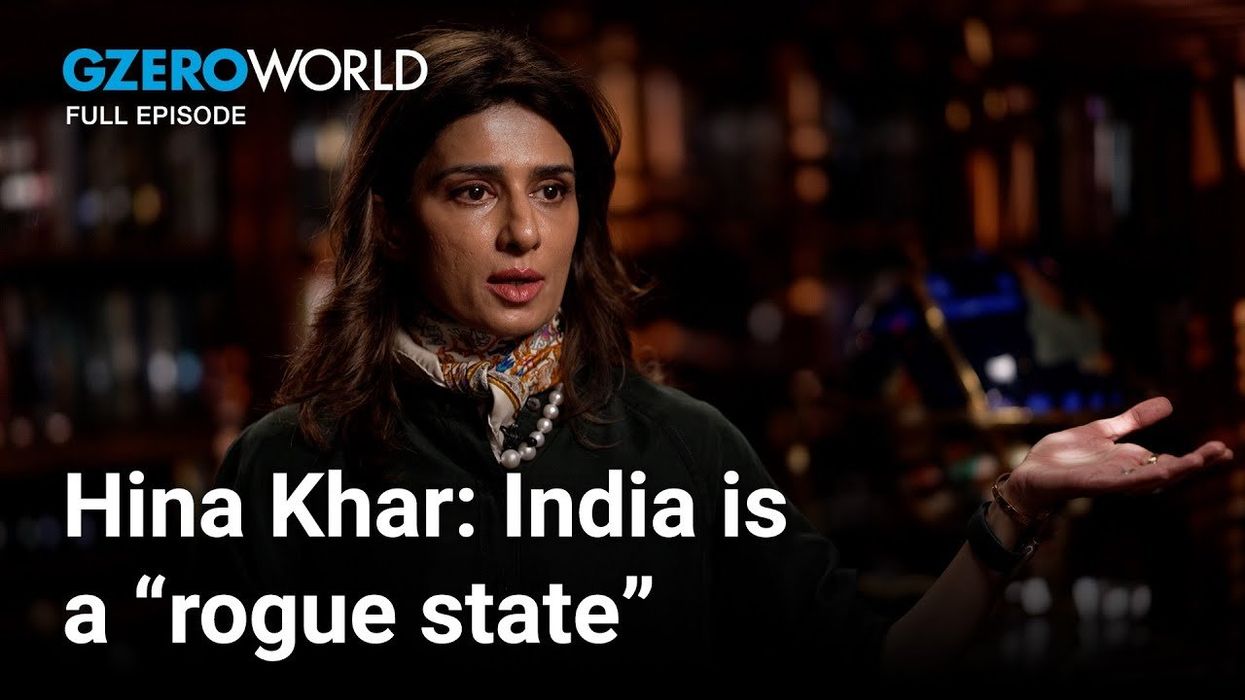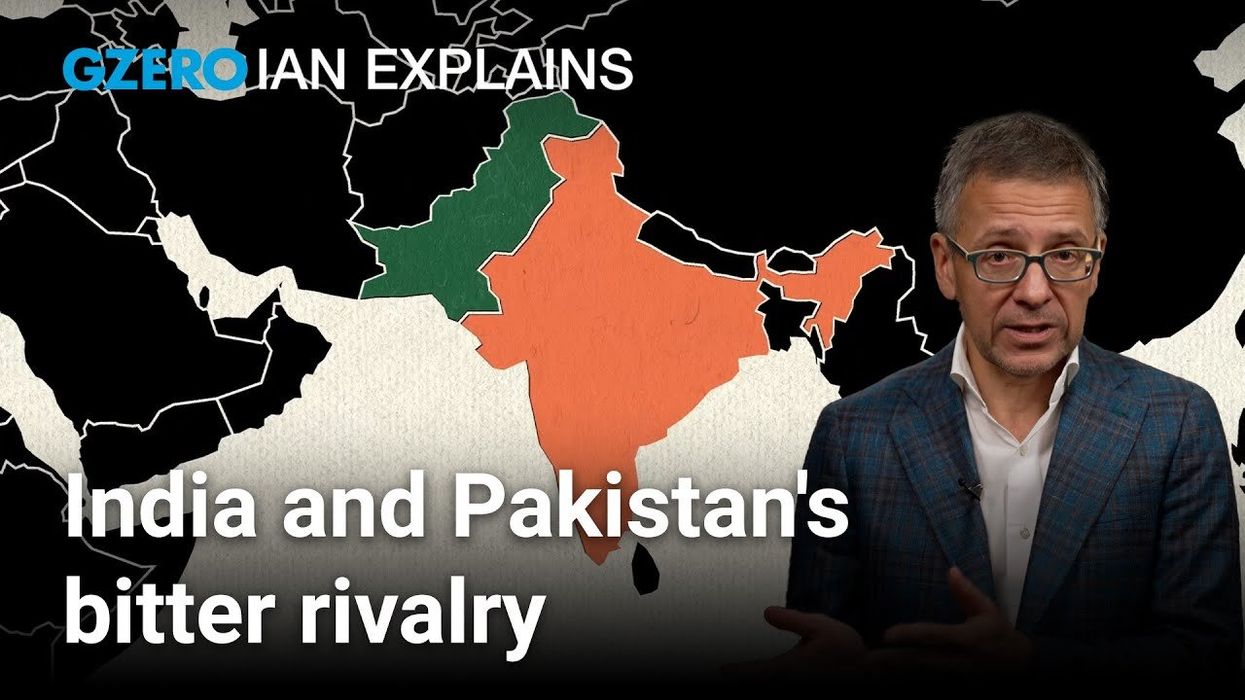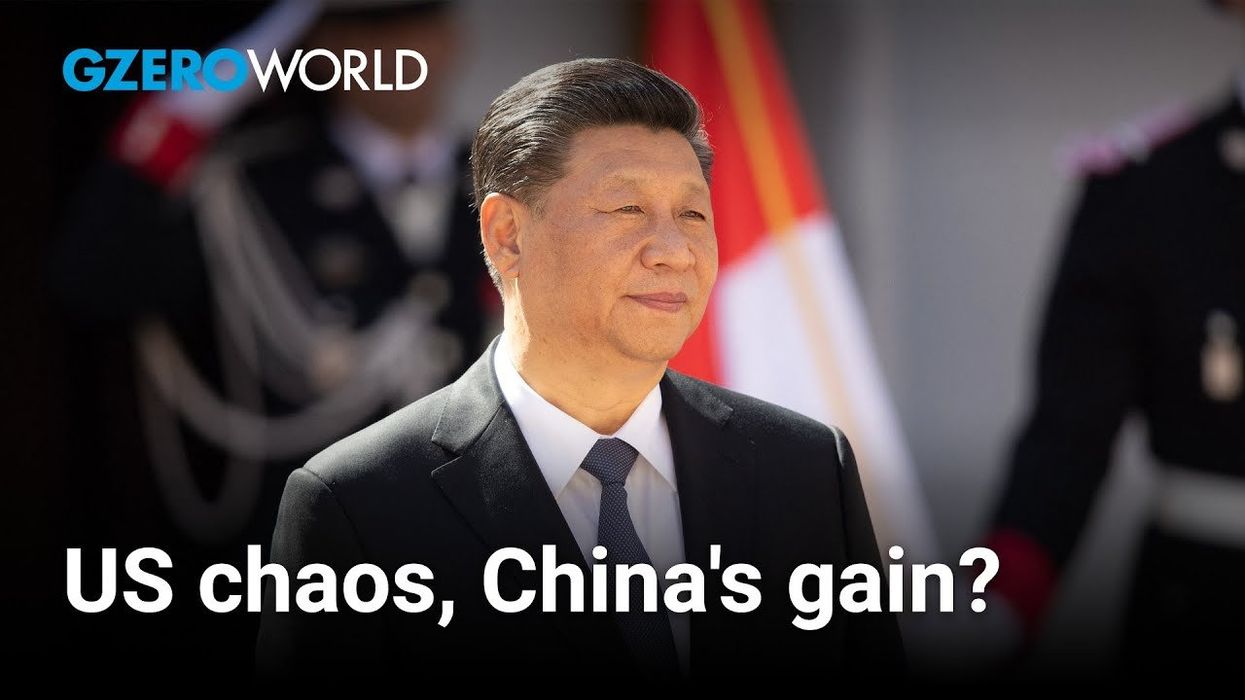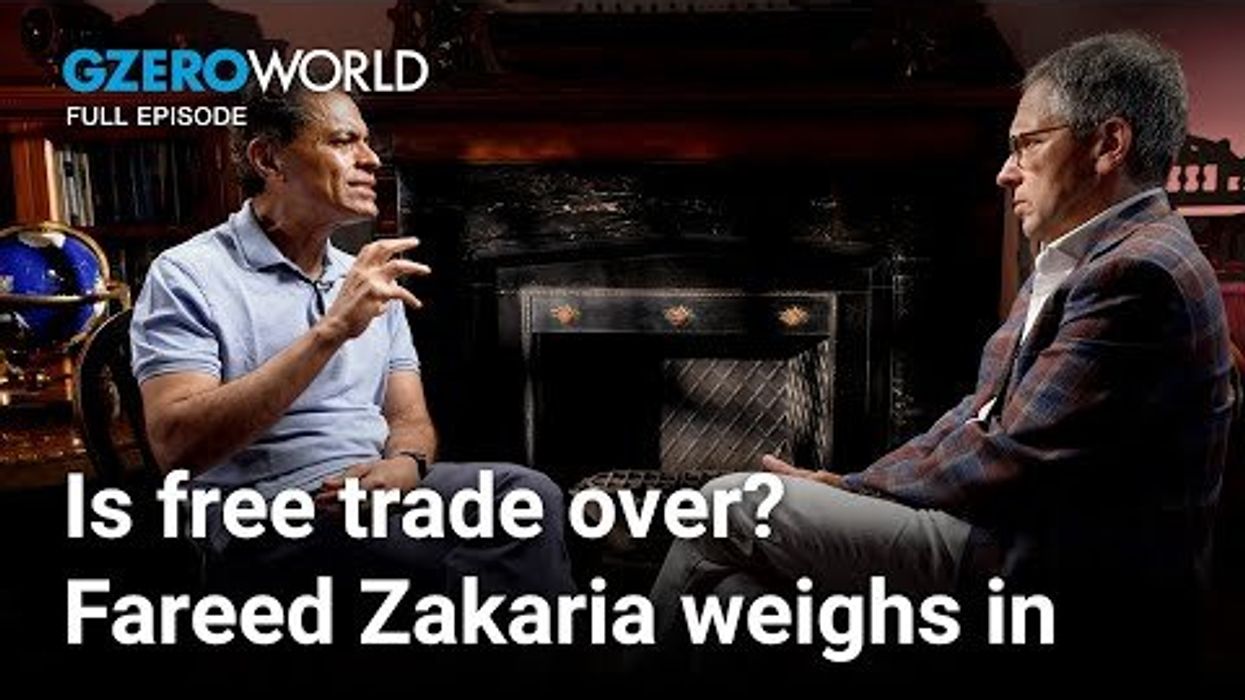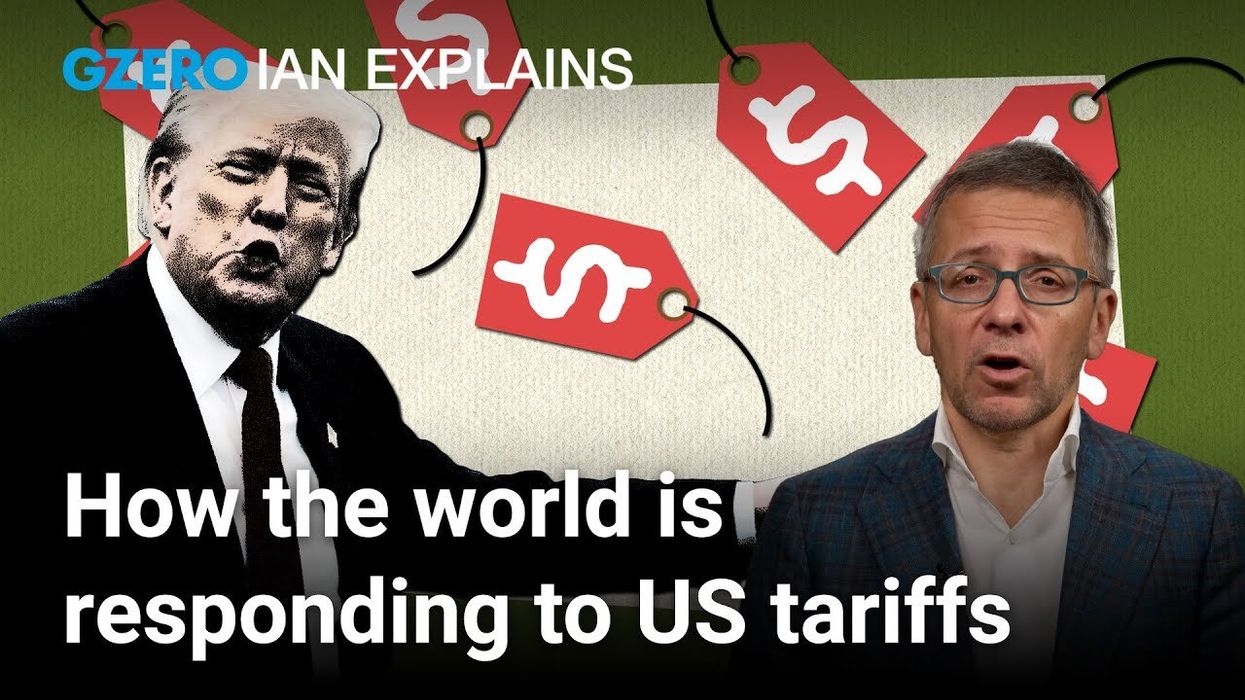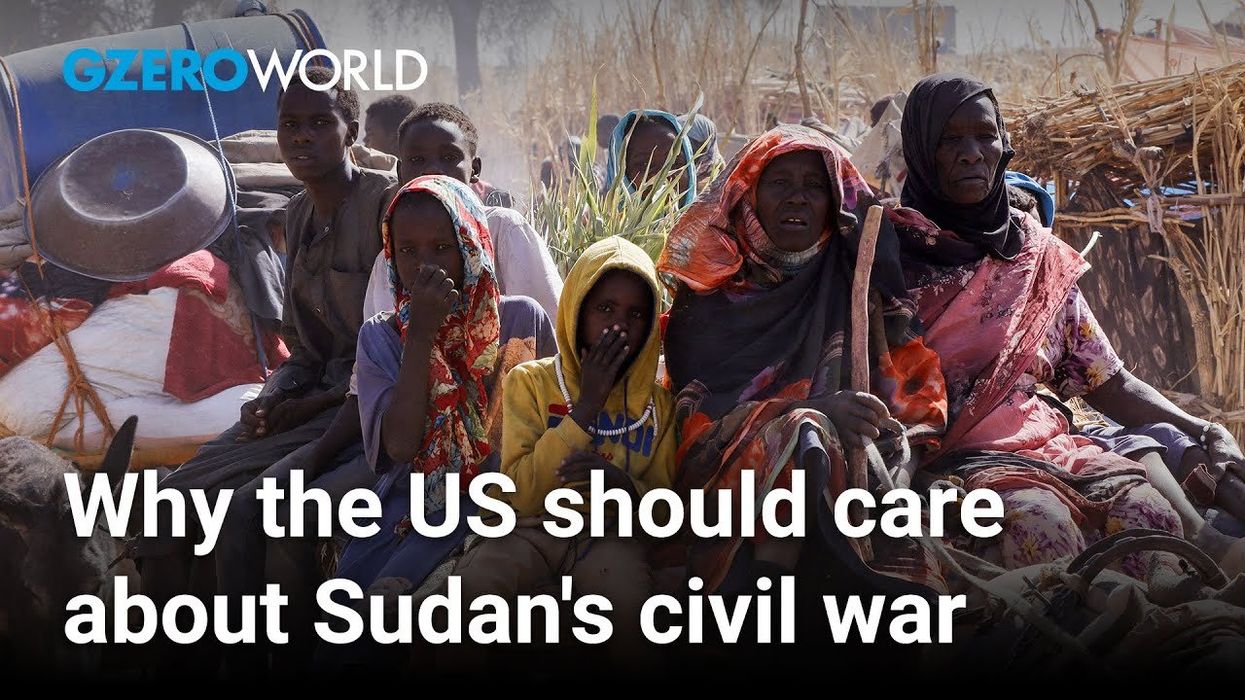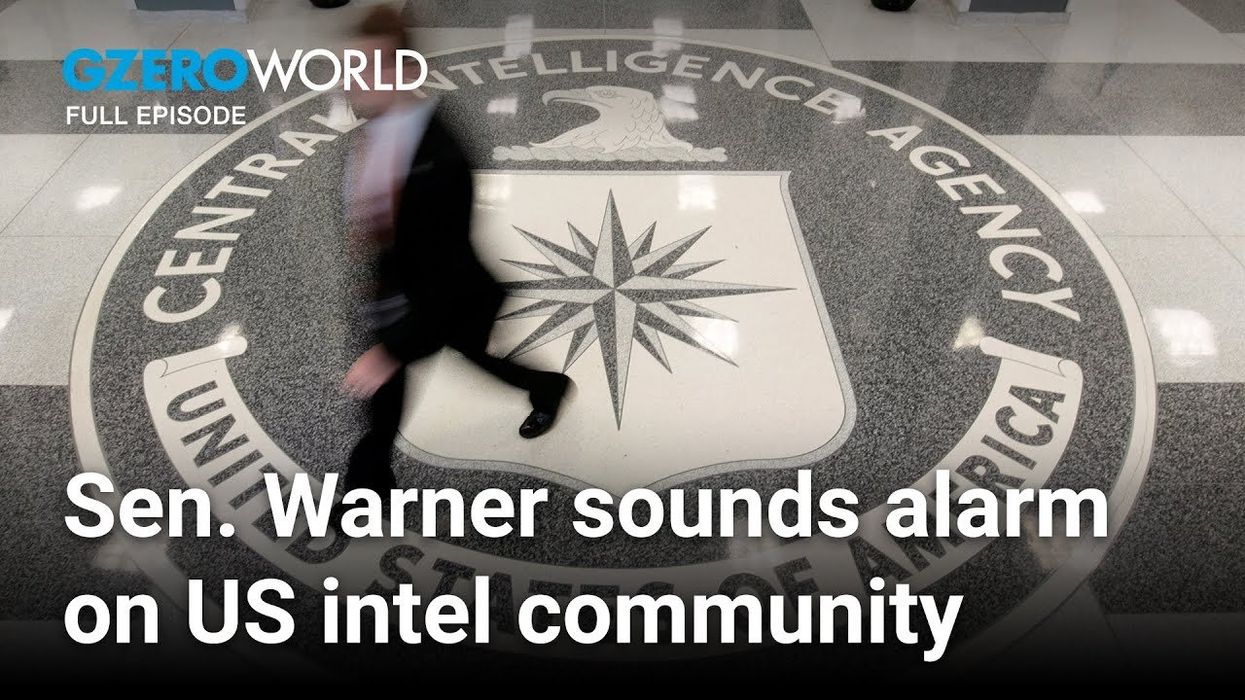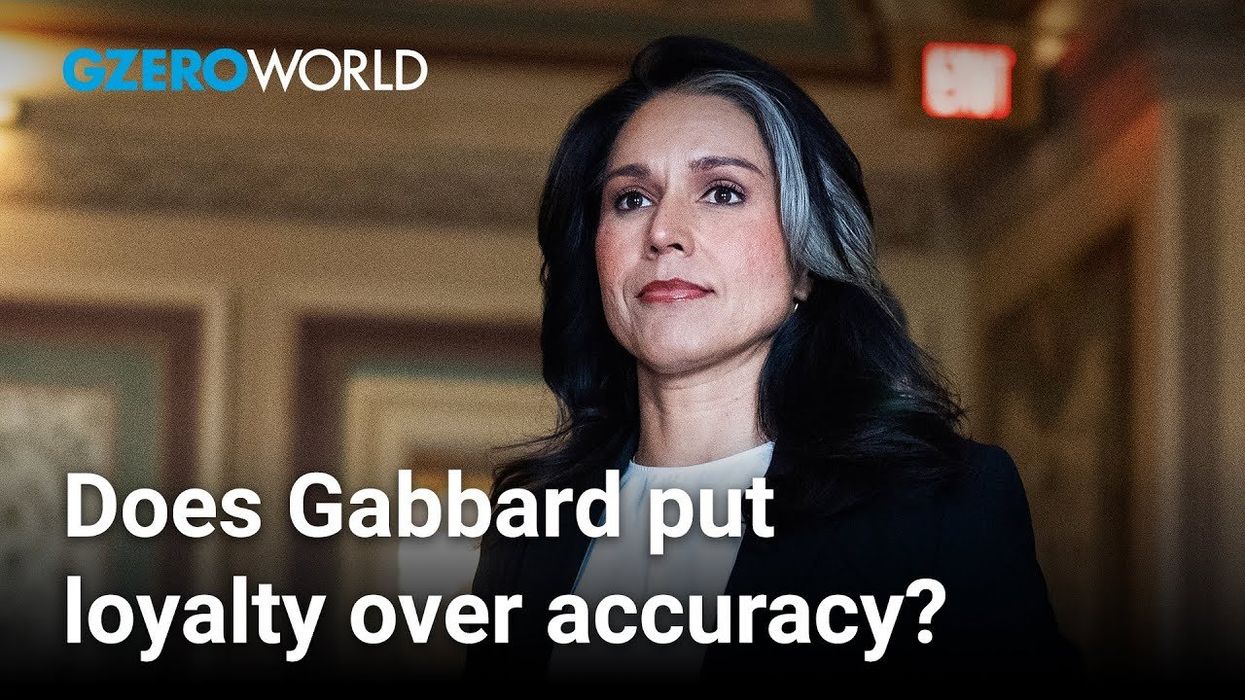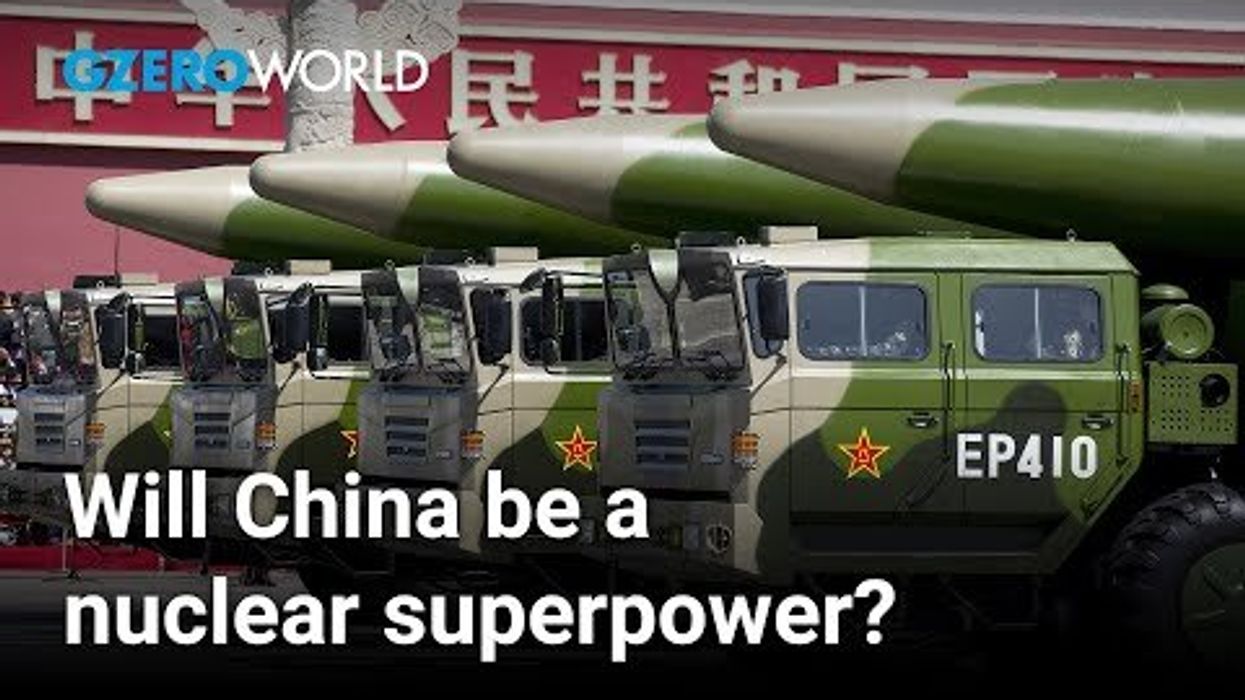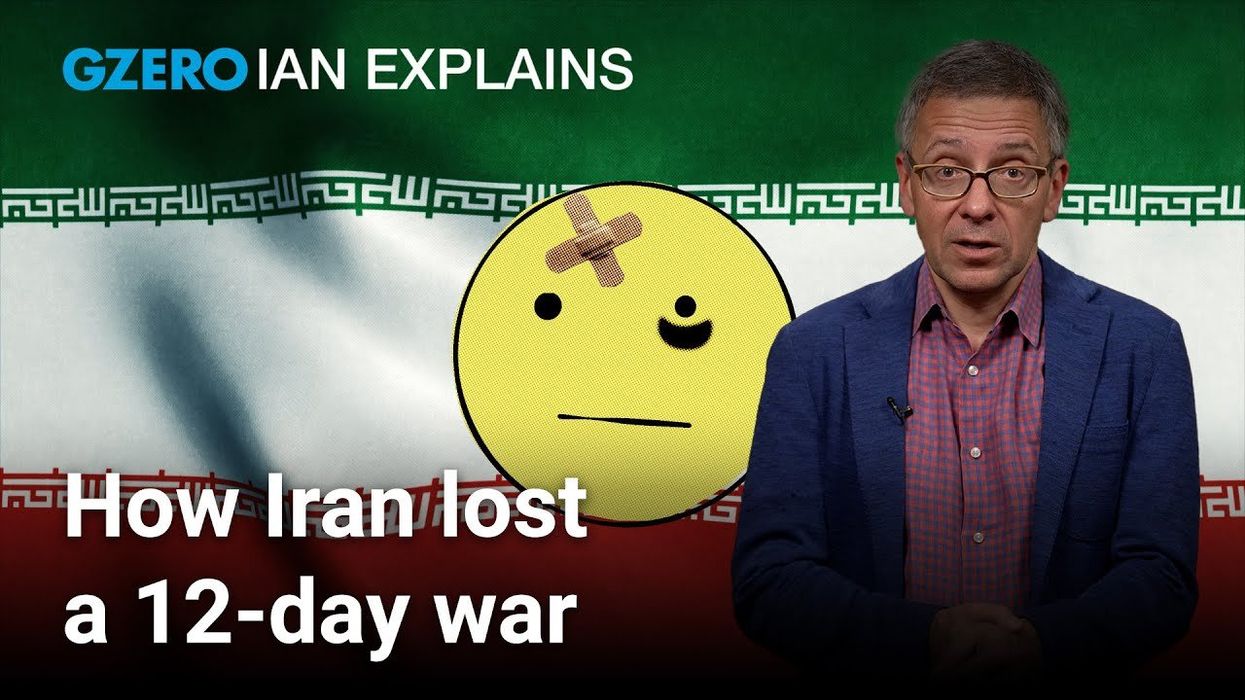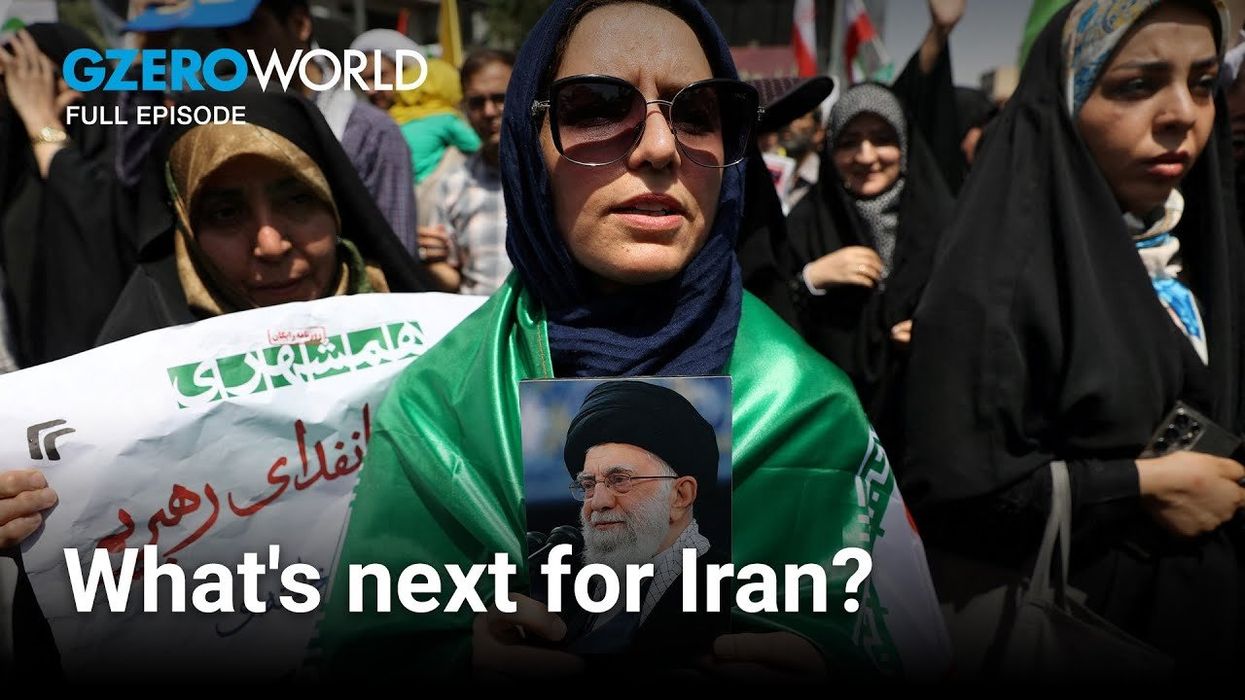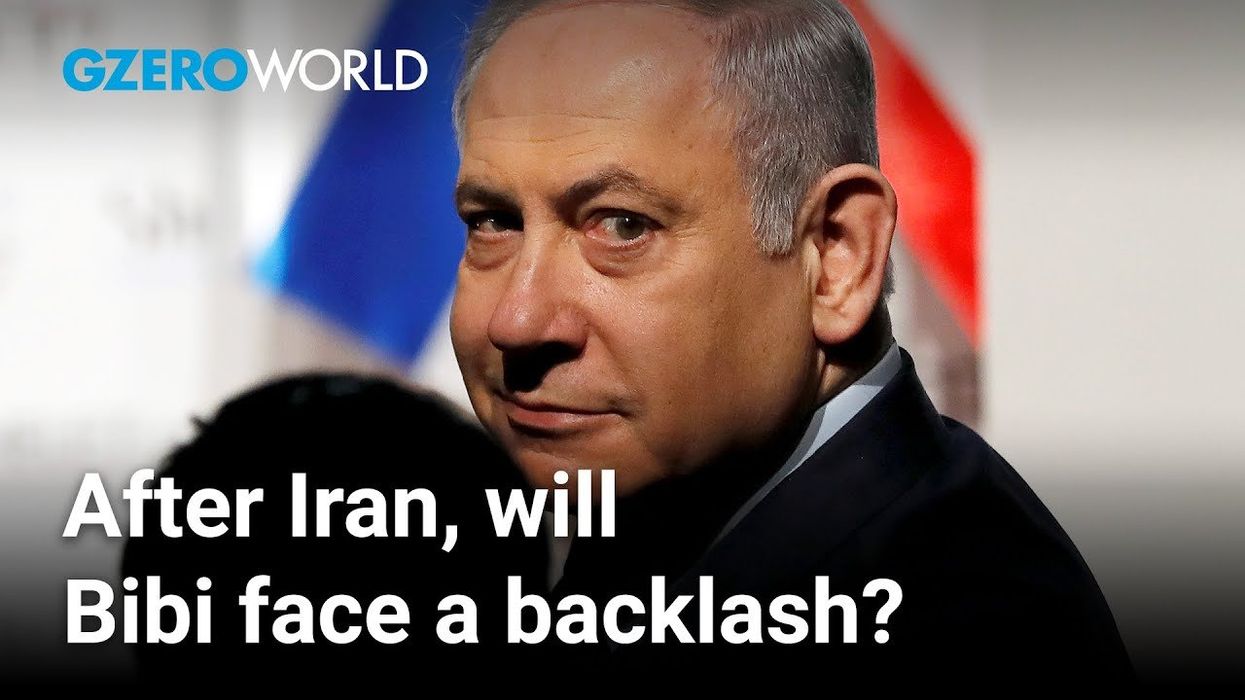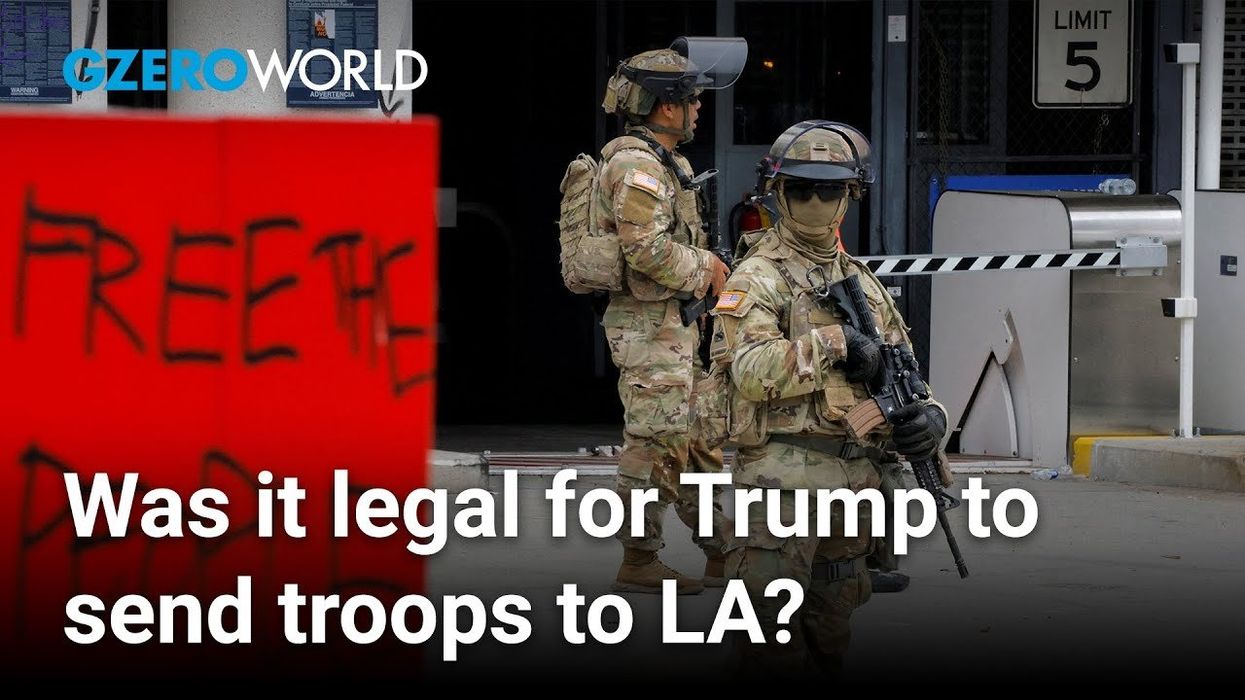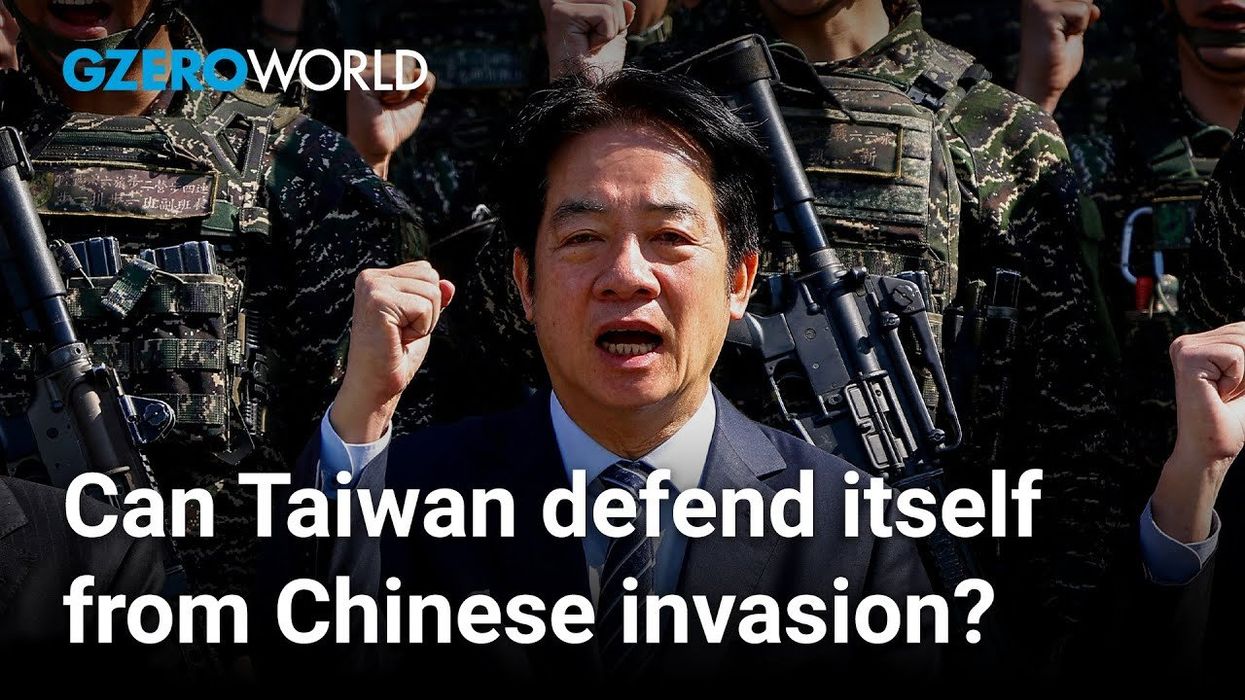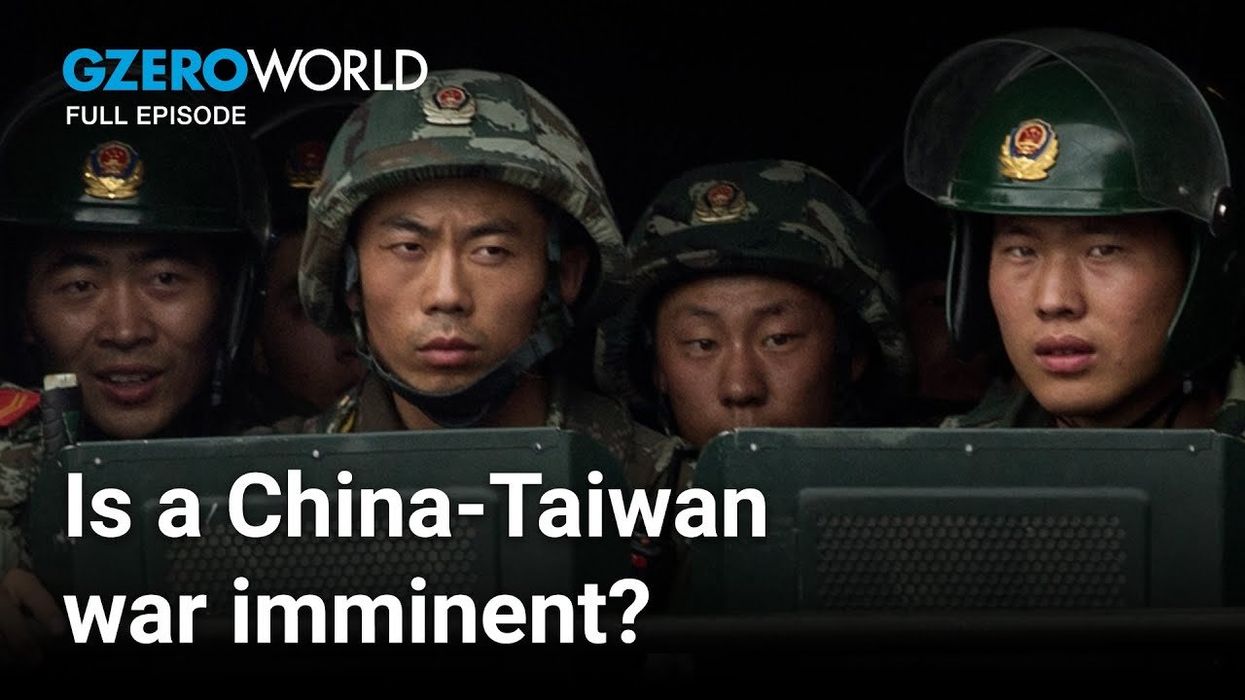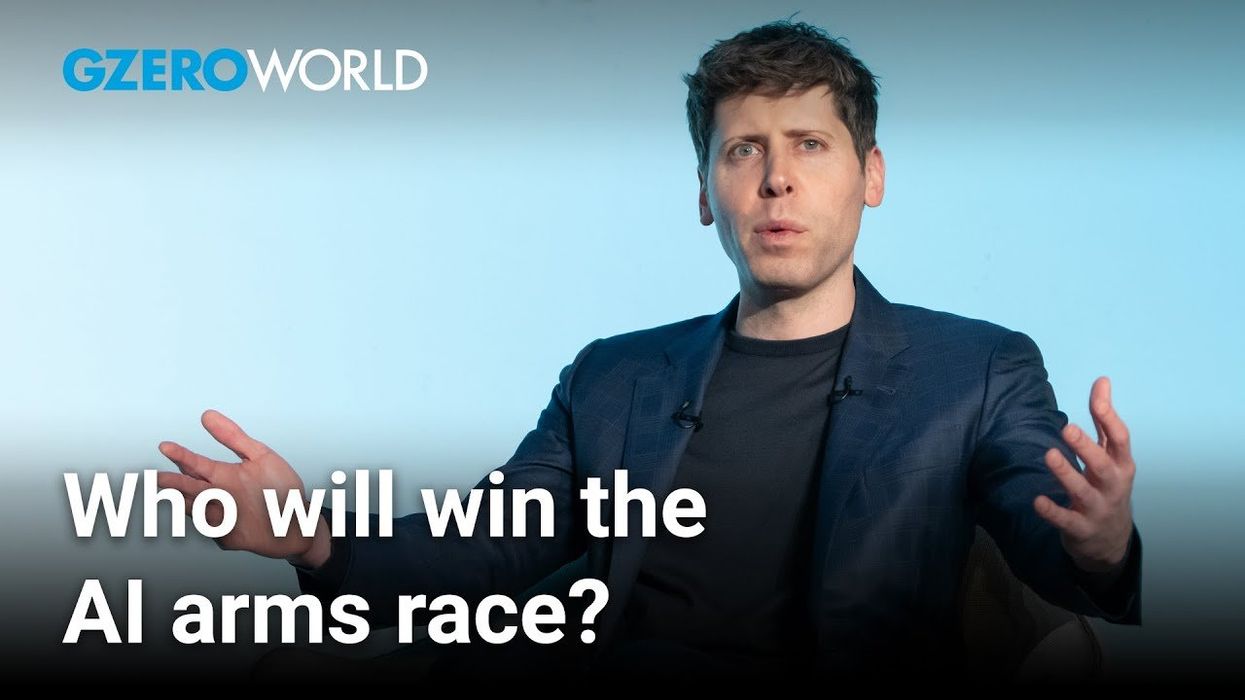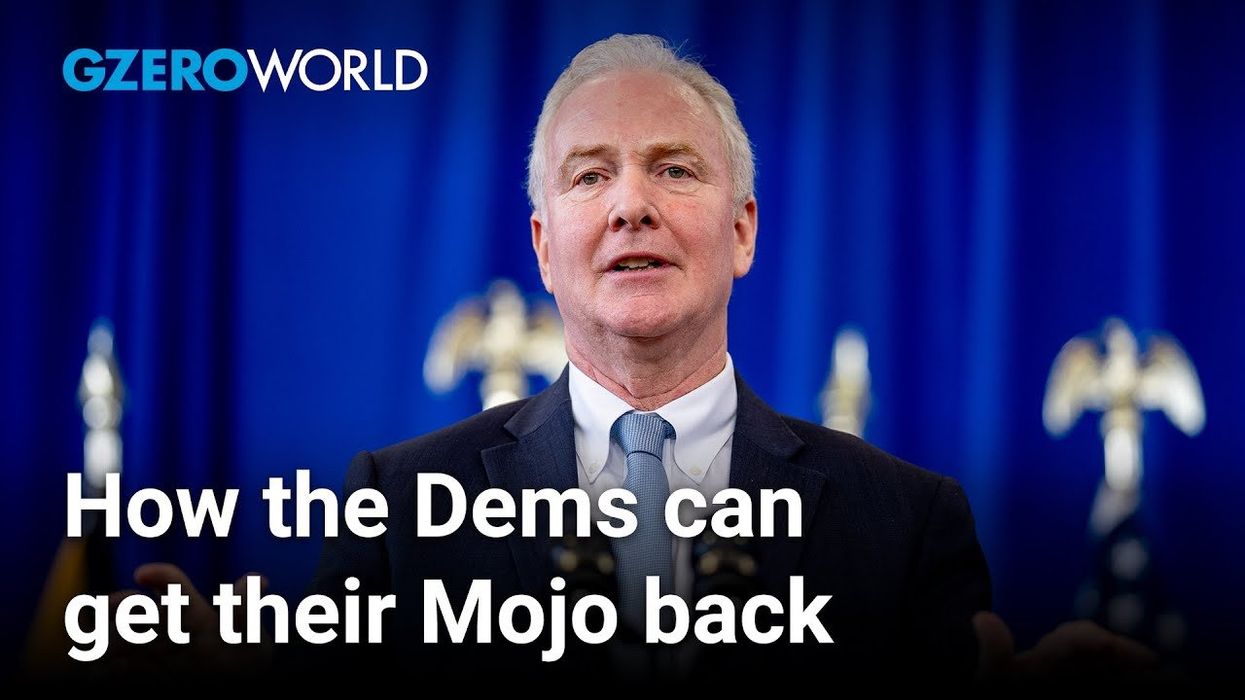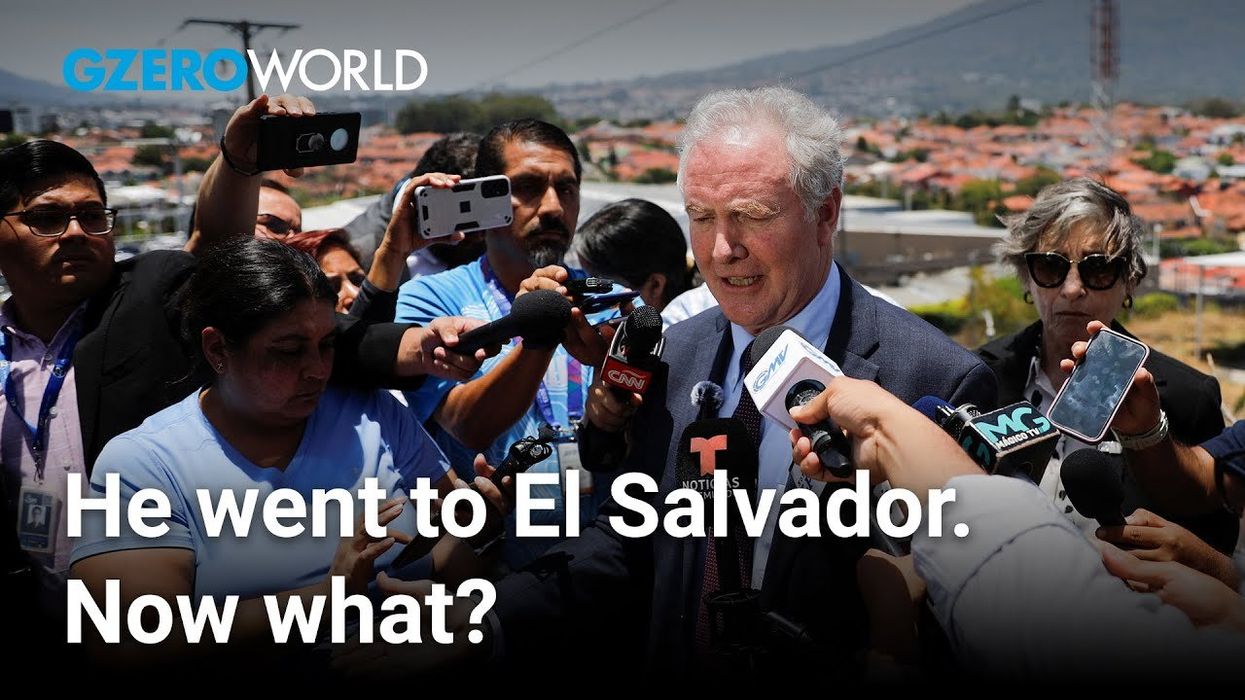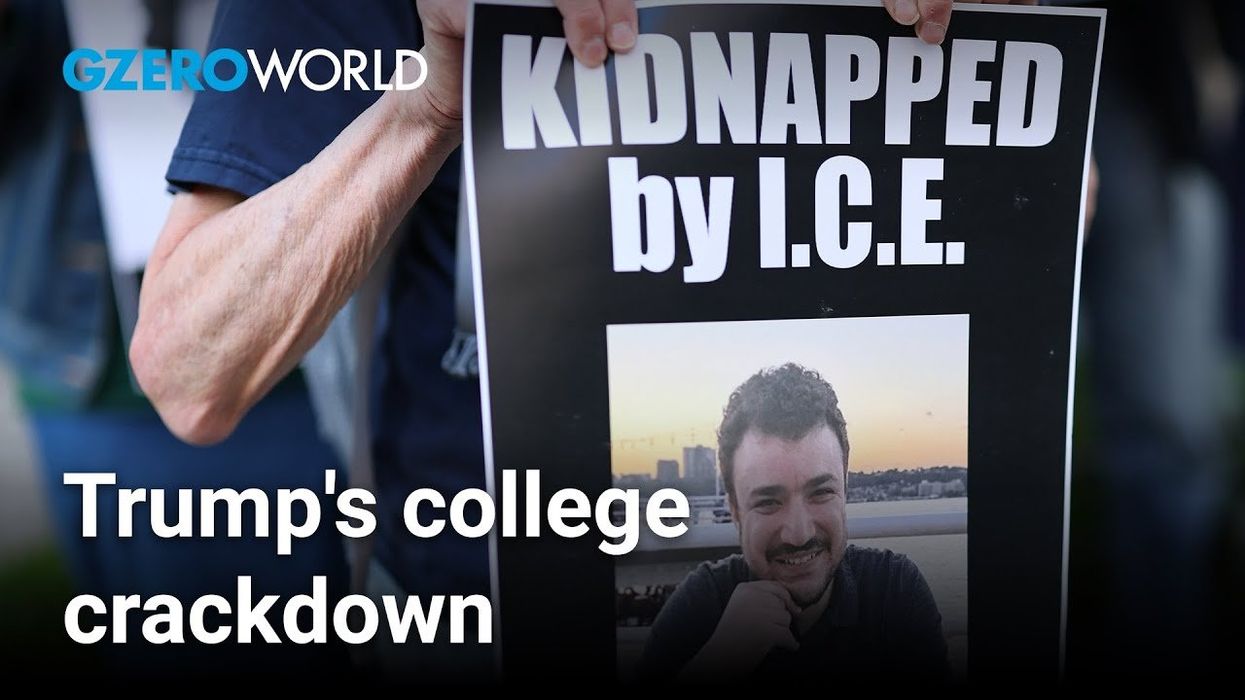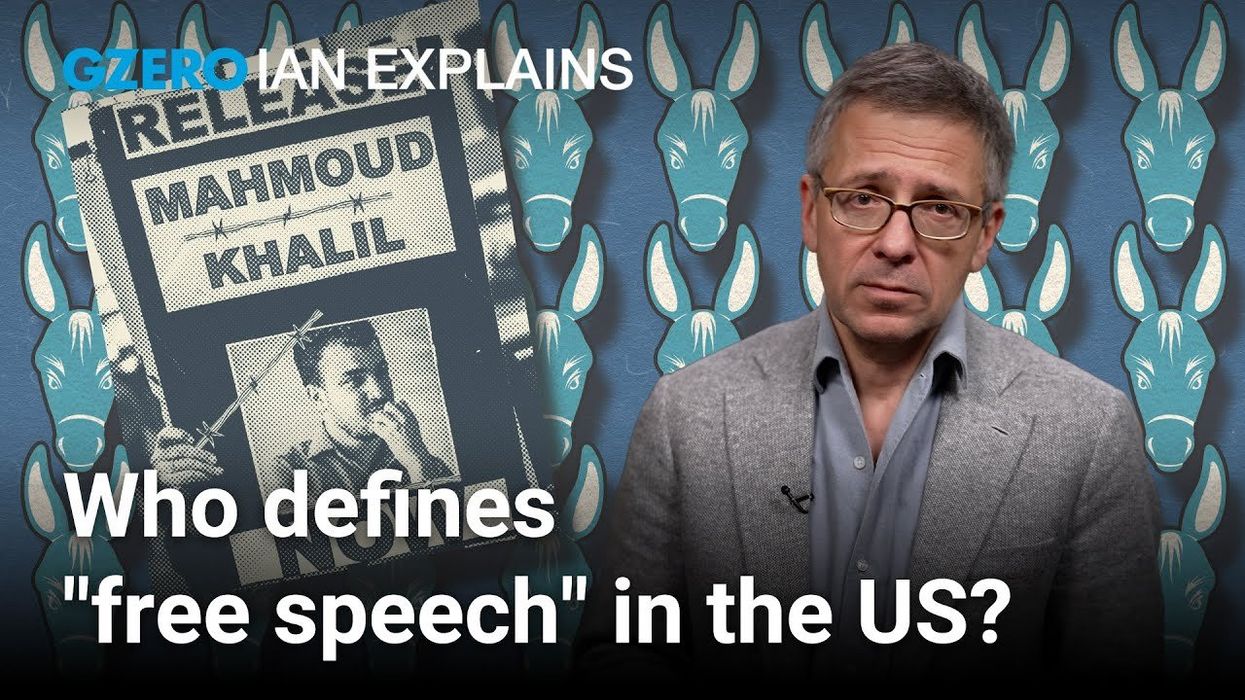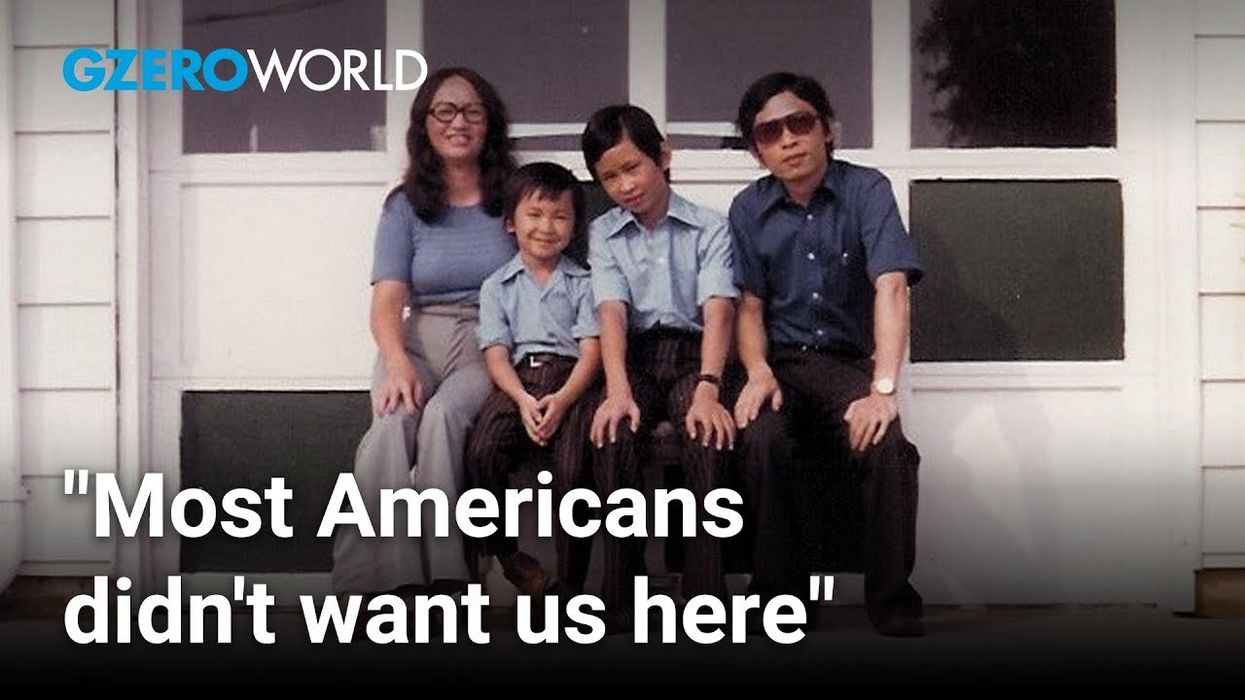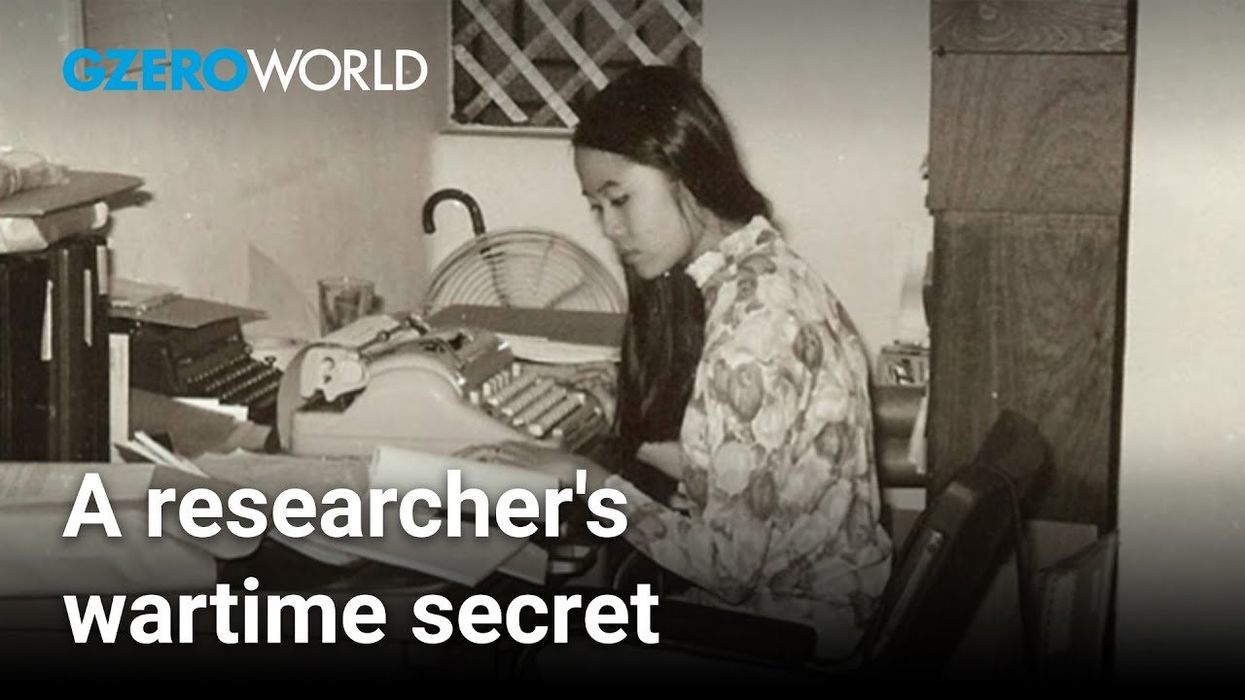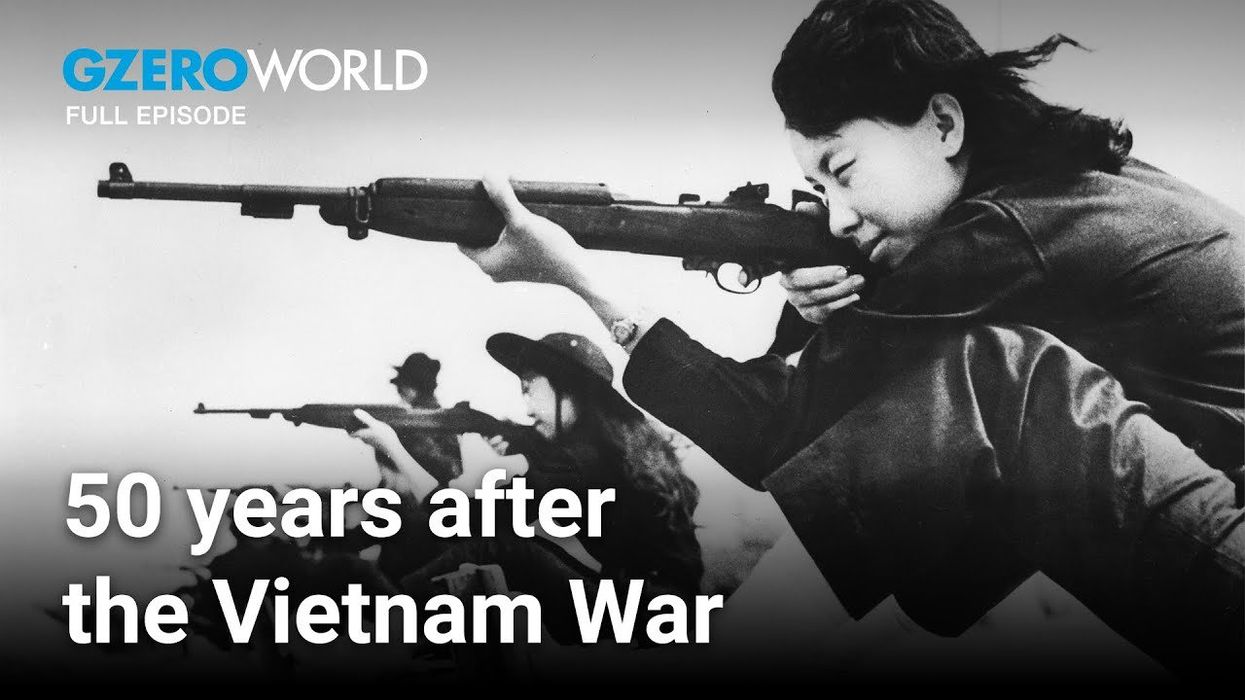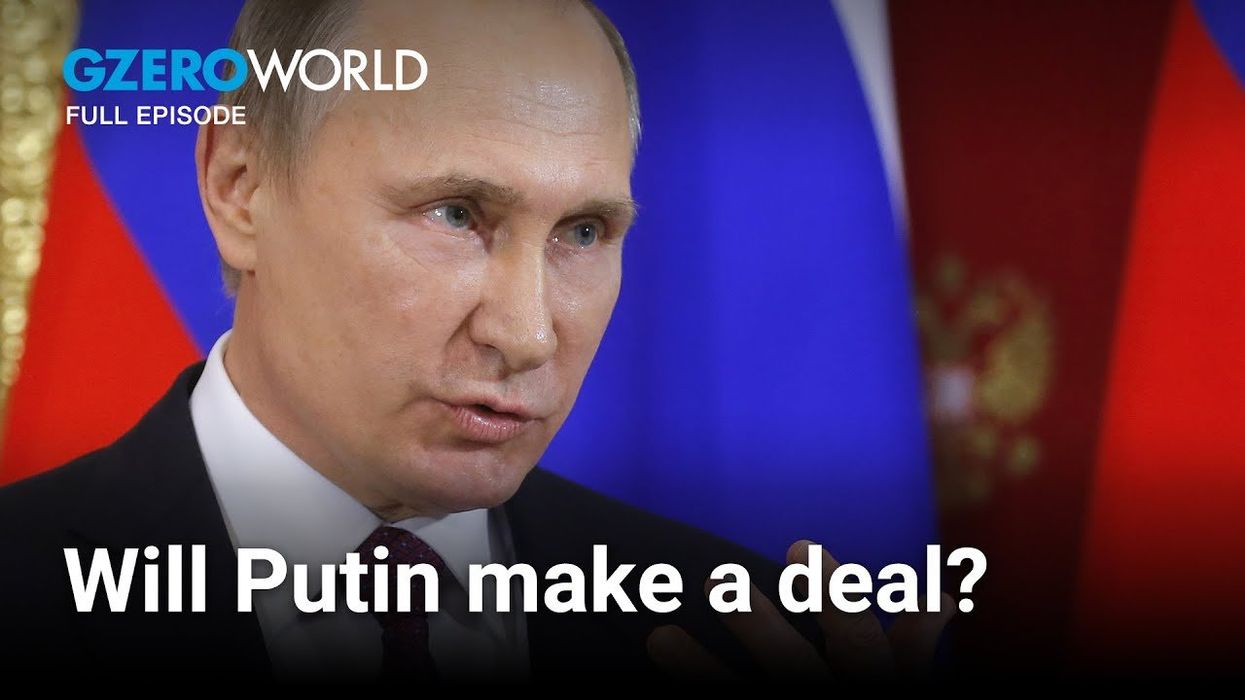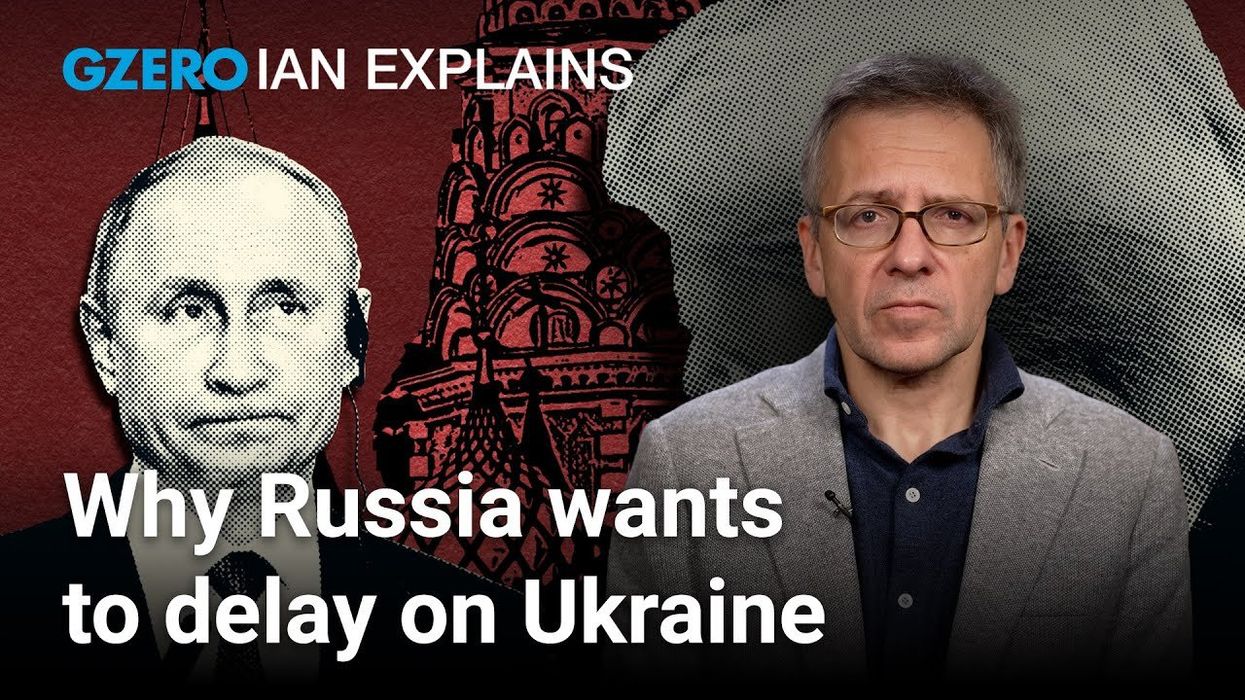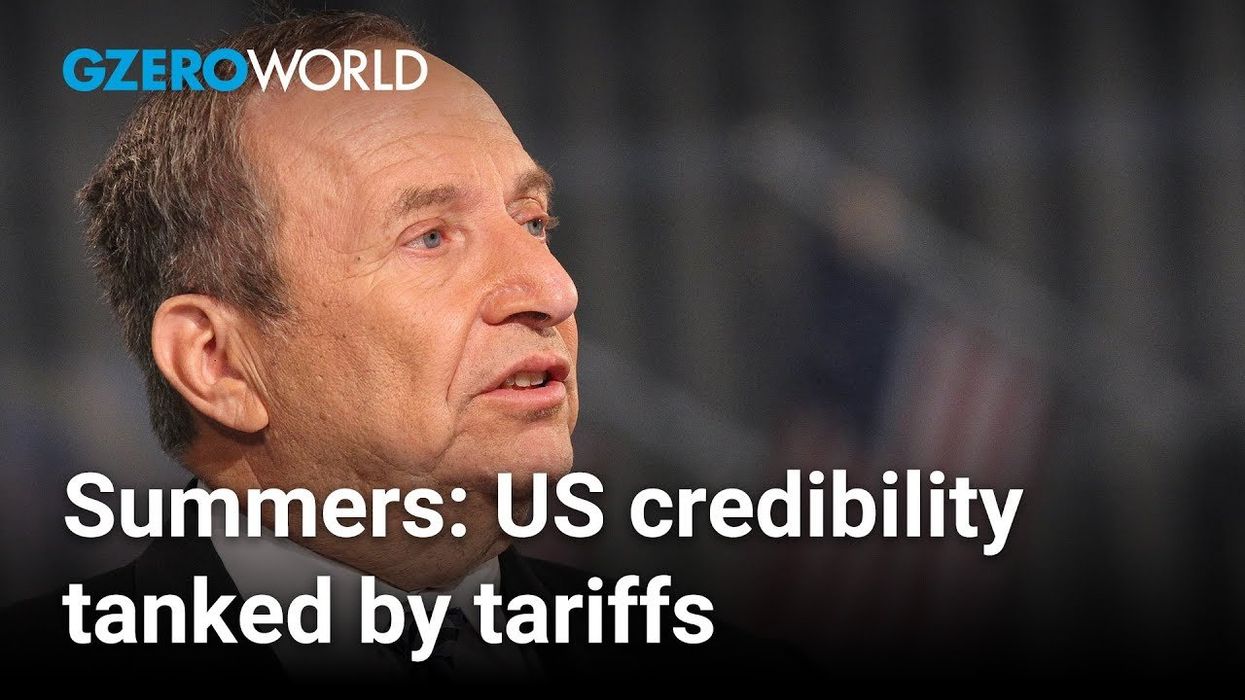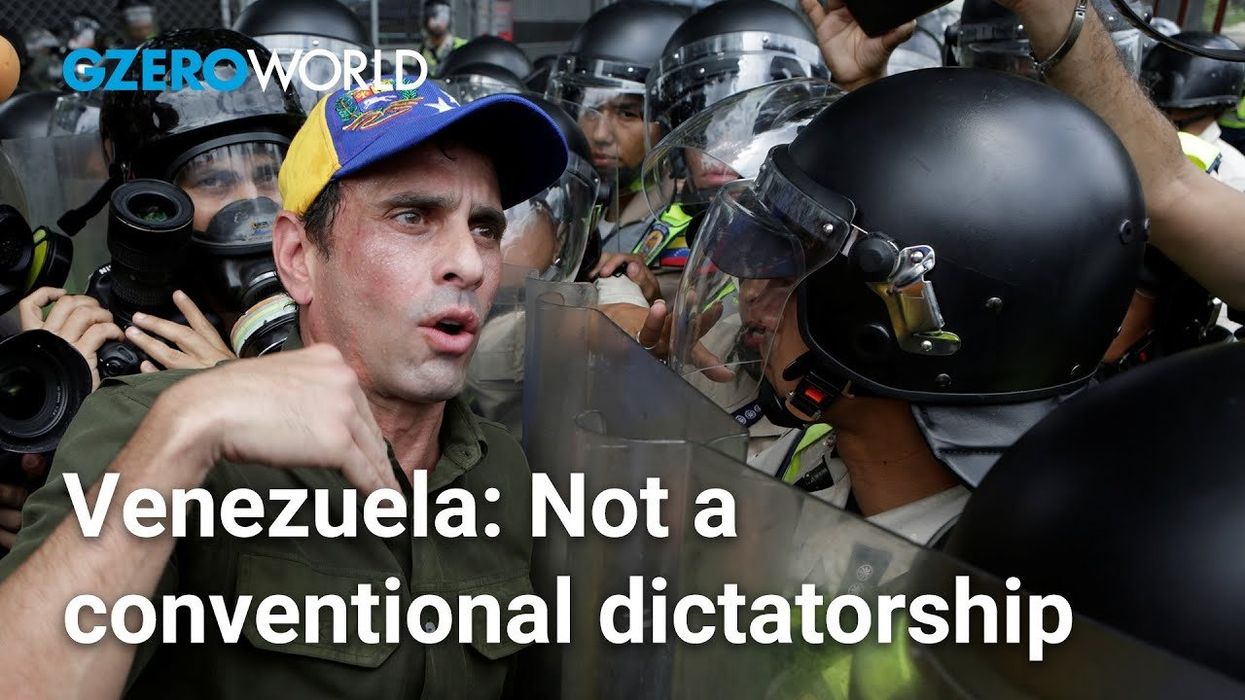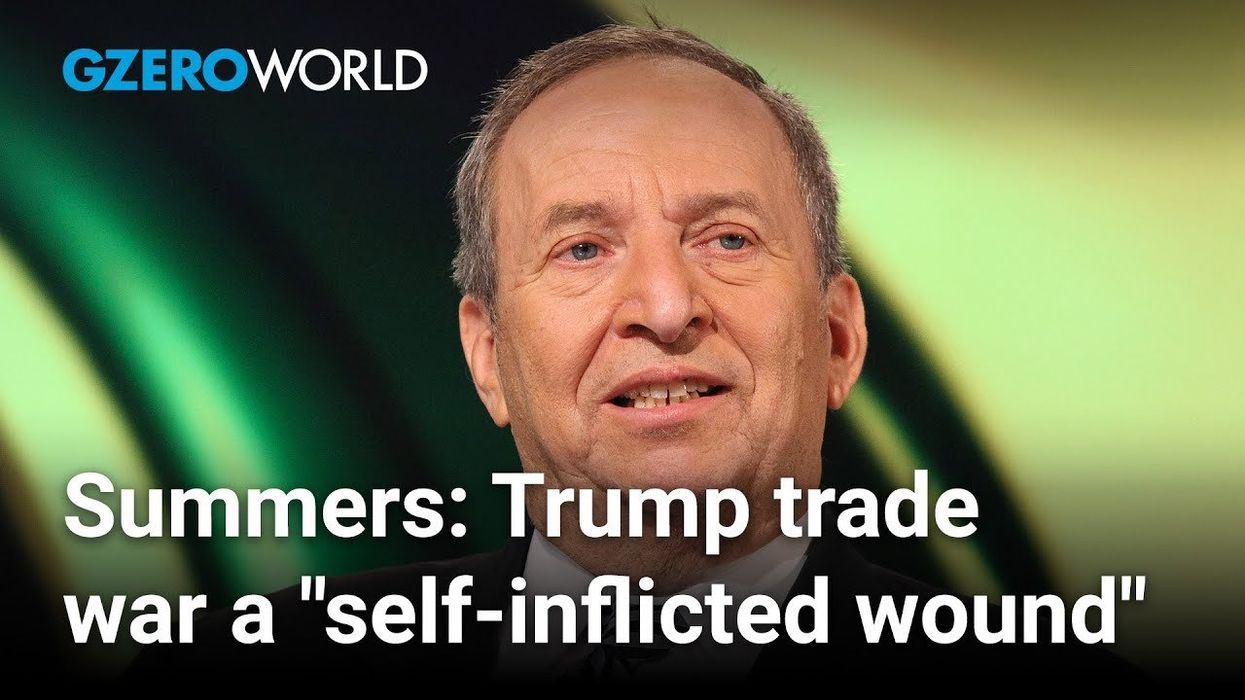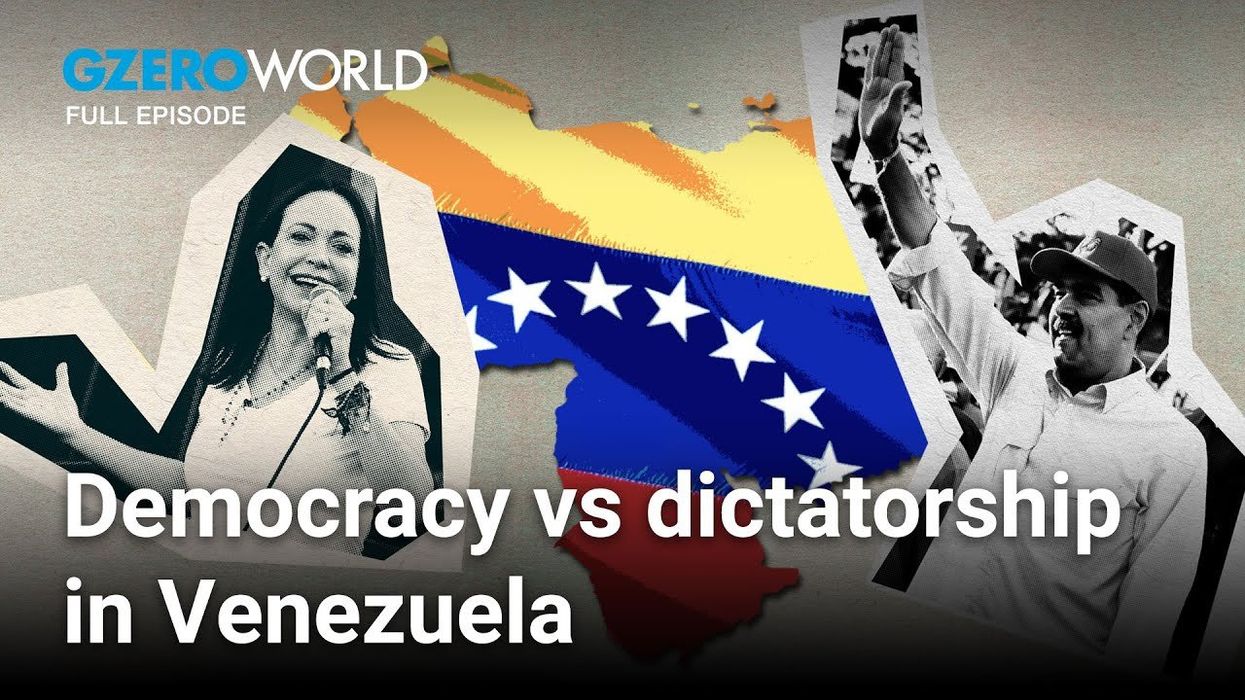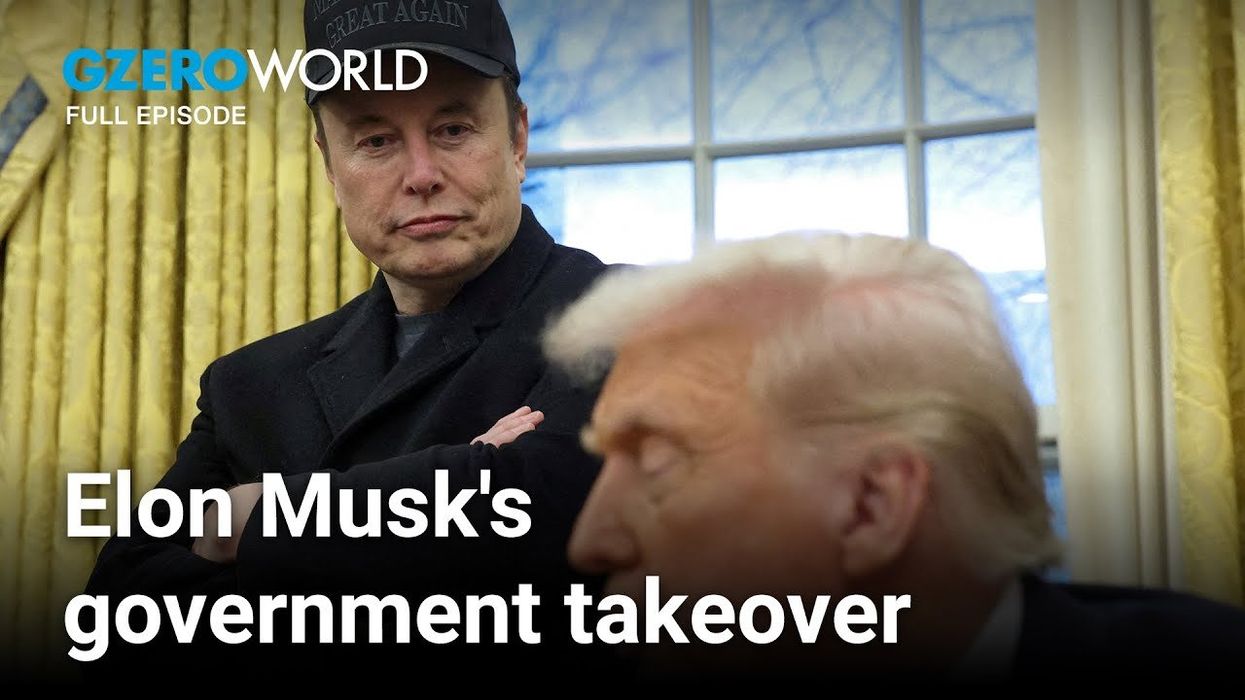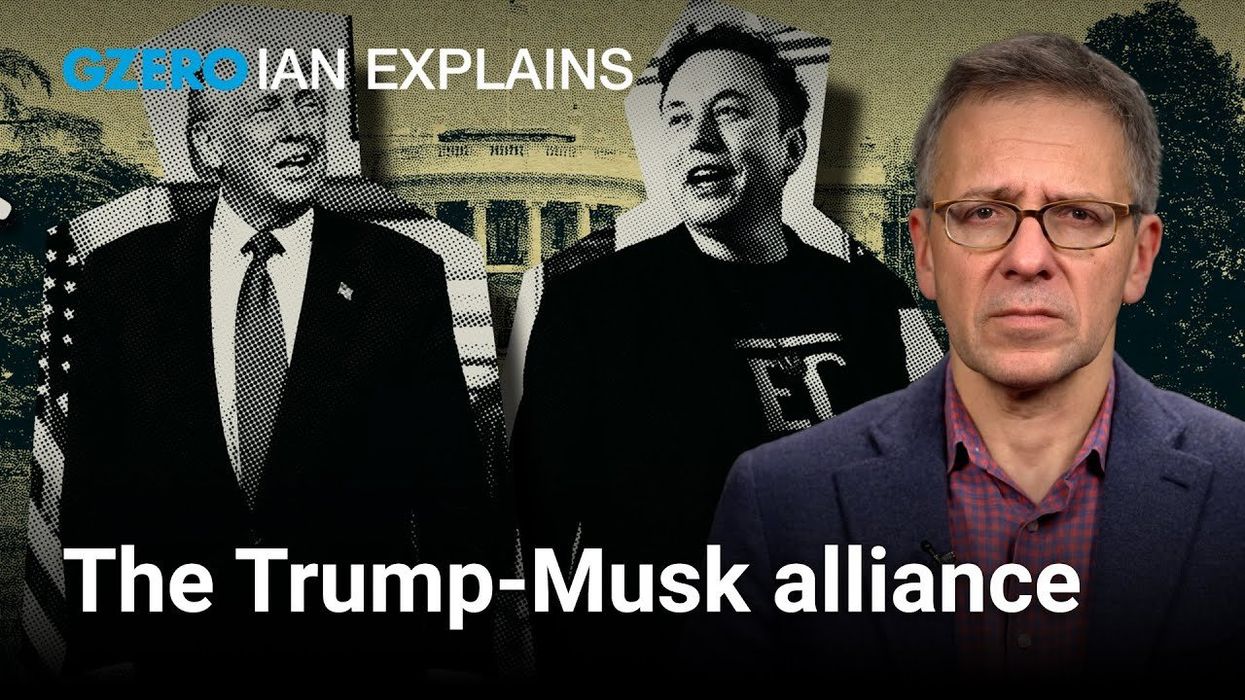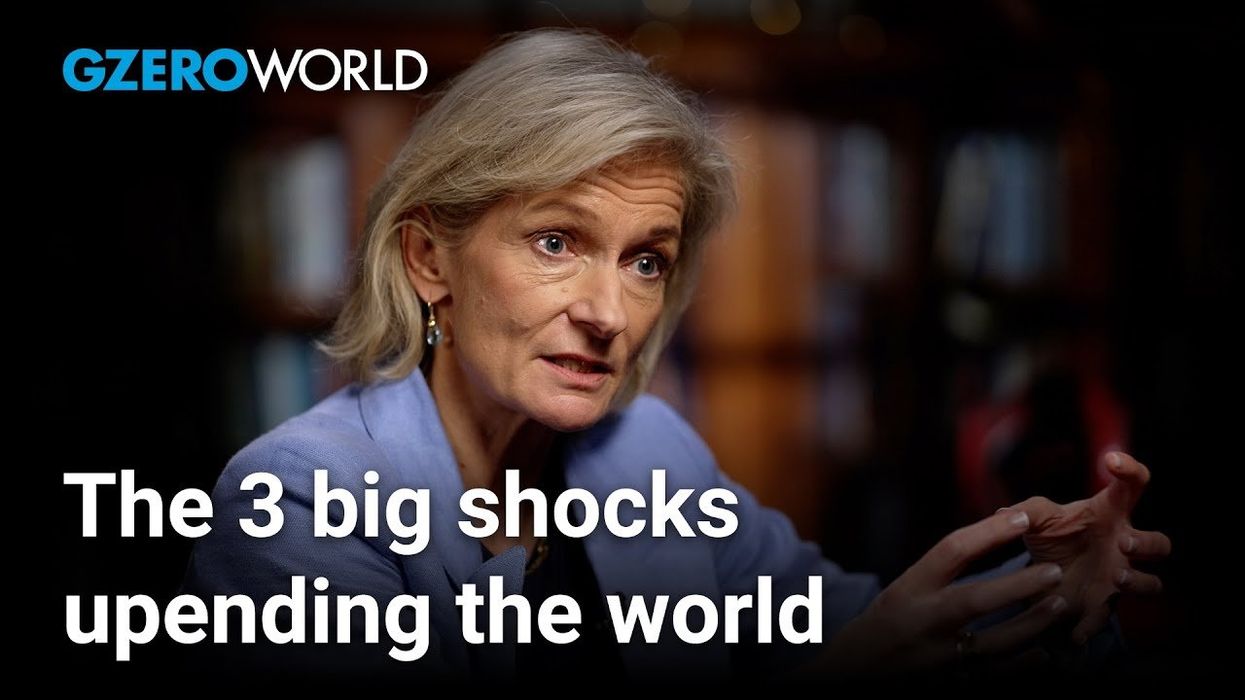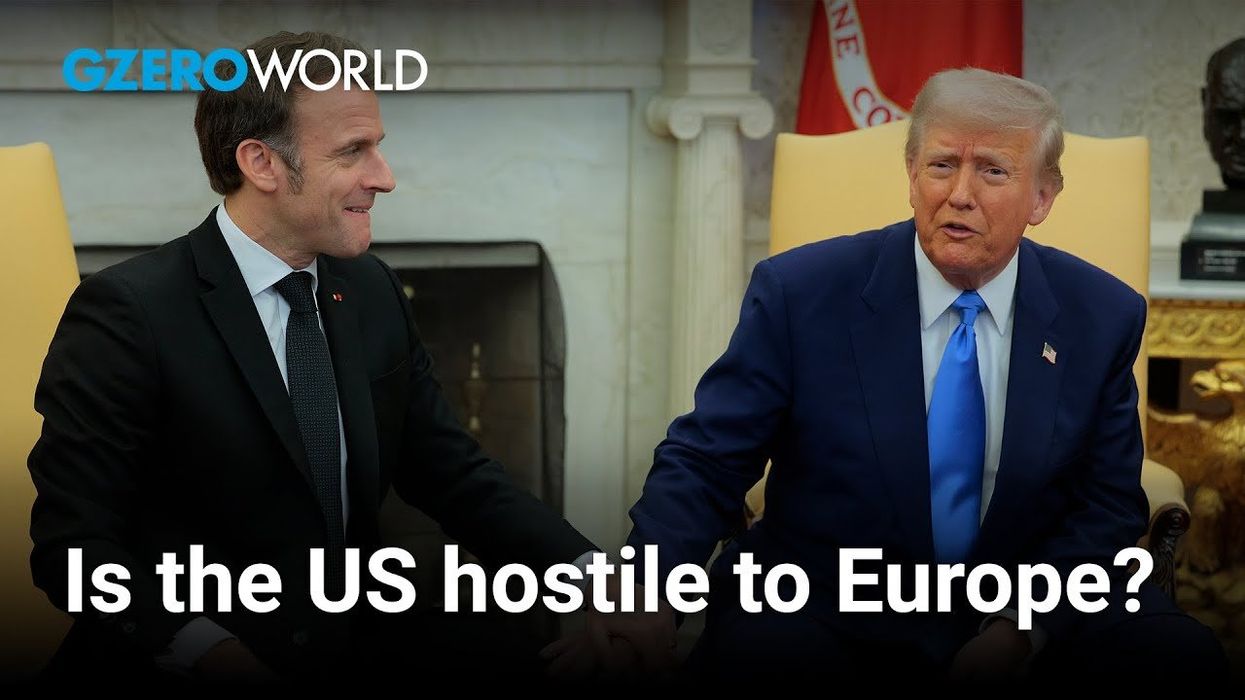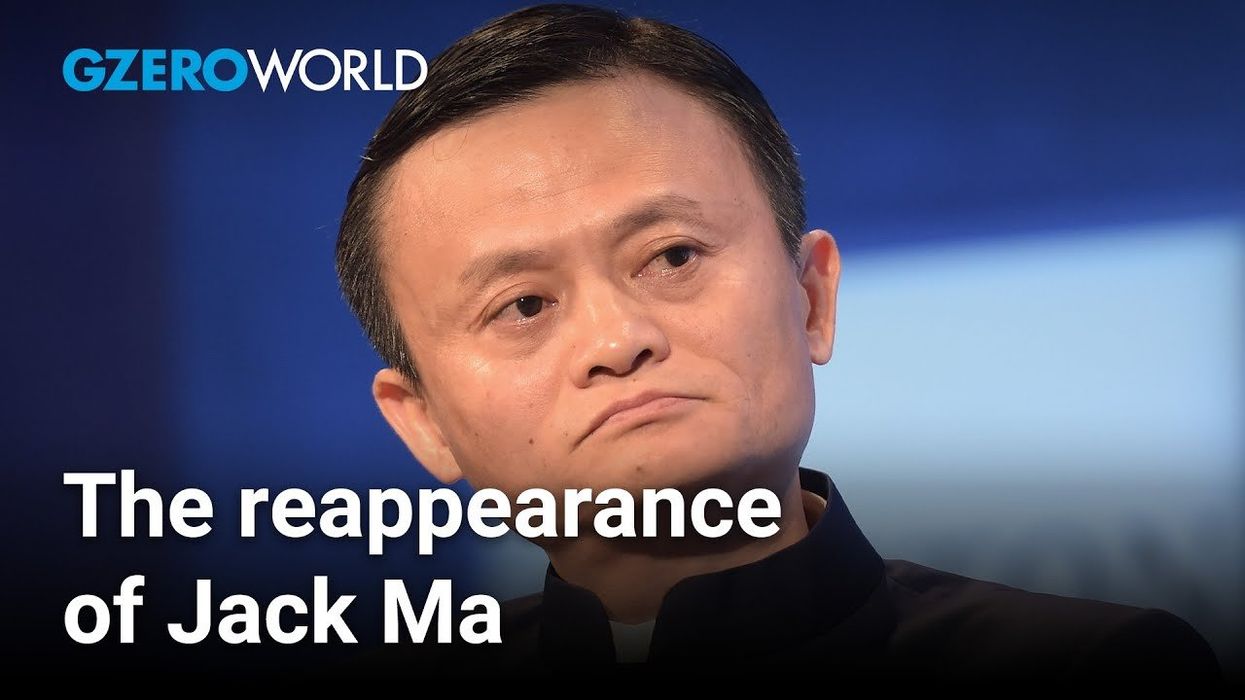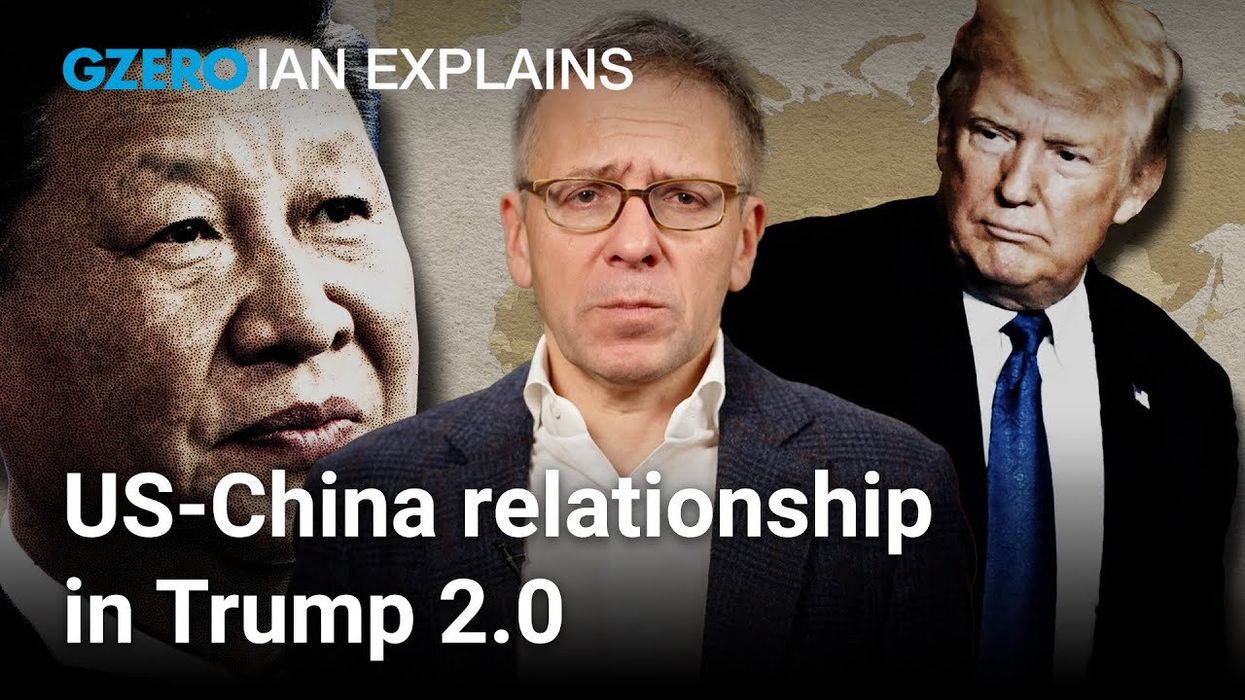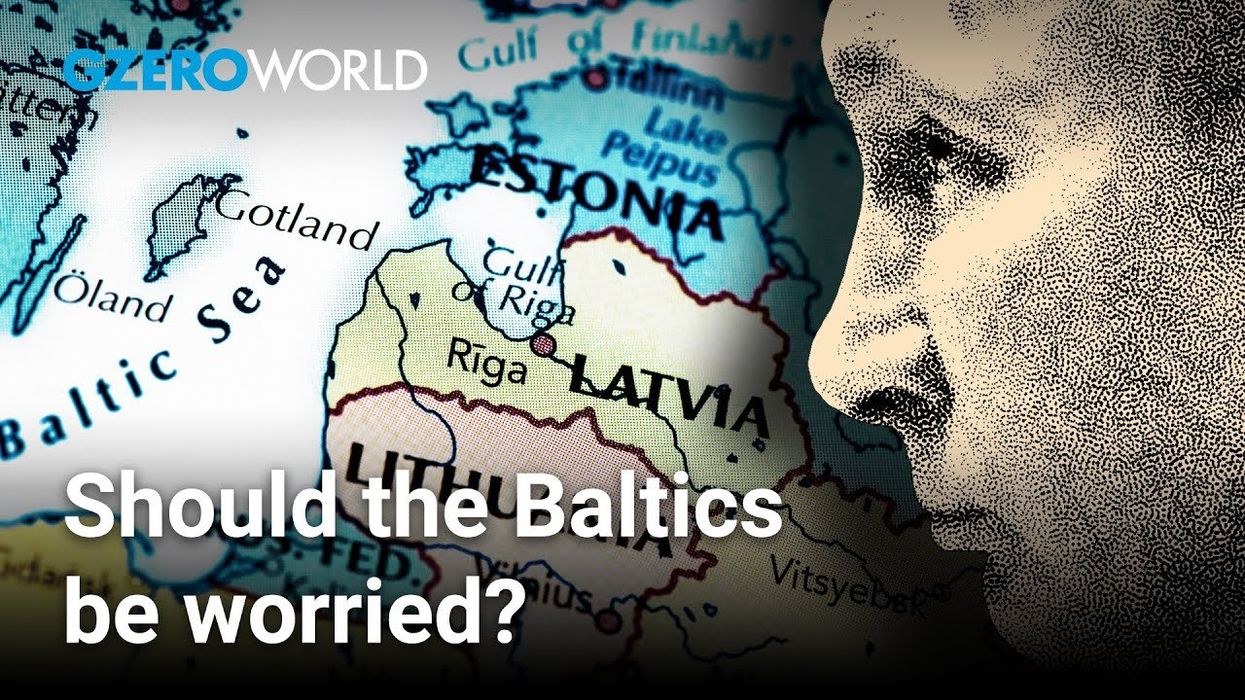VIDEOSGZERO World with Ian BremmerQuick TakePUPPET REGIMEIan ExplainsGZERO ReportsAsk IanGlobal Stage
Site Navigation
Search
Human content,
AI powered search.
Latest Stories
Sign up for GZERO Daily.
Get our latest updates and insights delivered to your inbox.
Global Stage: Live from Munich
WATCH RECORDING
GZERO World Clips
Highlights from the GZERO World with Ian Bremmer weekly television show.
Presented by
Hamas’ shock terrorist attacks cut deep into Israel's territory. That psychological trauma compounds the shock for millions of Israelis that their world-class intelligence and security forces completely missed the warning signs. That’s why comparisons with the 9/11 attacks on the US are the right analogy – Israel’s weakness was, in part, a failure of imagination, Ian Bremmer explains on GZERO World.
Now to Gaza. Hamas has launched a suicidal war, and Palestinians will pay dearly for it. But why did Hamas move now? In part because of their deteriorating position: blockaded by Israel and Egypt, the economy in Gaza was terrible and getting worse. Meanwhile, the geopolitics were leaving the Palestinians behind. Israel is in its strongest geopolitical position in decades and was on the verge of signing a historic peace deal with Saudi Arabia. The severity of Israel’s expected response – a ground invasion that will result in thousands of Palestinian deaths – makes that politically untenable for the Saudis now.
Despite the international outcry at this growing Palestinian death toll, Israel will be politically unified to a degree we haven’t seen in decades. After all, Hamas carried out the worst massacre of Jews since the Holocaust. Consequently, the recent domestic discord over Netanyahu’s efforts to weaken Israel’s courts will quiet down, at least until the security situation is brought under control. Last week, Prime Minister Benjamin Netanyahu agreed to form an emergency unity government with centrist opposition leader and former defense minister Benny Gantz. But make no mistake: Israeli domestic political polarization will return, and Netanyahu will have to explain the spectacular intelligence and security failures that allowed this to happen. And even if IDF forces manage to crush Hamas in Gaza, a long-term resolution to the Israeli-Palestinian conflict will remain as elusive as ever.
For now, outsiders, including the Biden administration, will work hard to keep this conflict within Israel’s borders. Iran, the crucial Hamas patron and arms supplier, has celebrated the Hamas attack, but it has been careful not to accept any direct responsibility for it. All eyes are now on Iran-backed Hezbollah forces to Israel’s north in Lebanon to be sure they don’t try to broaden the conflict. This wildfire is raging, and it will take a tremendous international effort to put it out. Many innocent people will find themselves trapped inside the inferno.
Watch the full GZERO World episode: Israel at war
Catch GZERO World with Ian Bremmer every week at gzeromedia.com/gzeroworld or on US public television. Check local listings.
Keep reading...Show less
More from GZERO World Clips
Beyond Gaza and Ukraine: The wars the world is ignoring
December 23, 2025
The state of global conflict in 2025
December 22, 2025
Why the world is becoming more violent than ever
December 19, 2025
Wikipedia's cofounder says the site crossed a line on Gaza
December 16, 2025
In Wikipedia We Trust?
December 15, 2025
Can we still trust Wikipedia?
December 12, 2025
'Godfather of AI' warns of existential risks
December 08, 2025
Will AI replace human workers?
December 05, 2025
Could the US really invade Venezuela?
November 24, 2025
Could the US pull another Panama in Venezuela?
November 21, 2025
Will "AI euphoria" crash the markets?
November 17, 2025
Is the AI bubble about to burst?
November 14, 2025
Is the US falling behind China?
November 10, 2025
What the US can learn from China's infrastructure boom
November 07, 2025
The dangers of unchecked AI
October 27, 2025
Is the future of AI physical?
October 24, 2025
Republicans and Democrats are more divided than ever
October 20, 2025
The state of America's political parties
October 17, 2025
Did Netanyahu got everything he wanted in Gaza peace deal?
October 04, 2025
Putin's drone battle for Ukraine's skies
September 29, 2025
How Russia overtook Ukraine's drone advantage
September 26, 2025
The UN is running out of cash. Can it reform before it's too late?
September 22, 2025
The world is on fire and the UN is running out of money
September 19, 2025
Will the clean energy revolution leave the US behind?
September 15, 2025
How AI is transforming medicine, and the cancer fight
September 07, 2025
The global refugee crisis is at breaking point
August 25, 2025
The broken system behind the refugee crisis
August 22, 2025
Why Pakistan sees China as a "force for stability"
August 18, 2025
India vs. Pakistan: Rising tensions in South Asia
August 16, 2025
Why India and Pakistan can't get along
August 15, 2025
Feldman: Trump is using antisemitism to go after Harvard
August 11, 2025
As Trump pressures universities, what's really at stake?
August 10, 2025
What's at stake in the US-China trade war
August 04, 2025
Are Trump's tariffs the end of the free trade era?
August 02, 2025
Trump's tariffs are already changing global trade
August 01, 2025
Is the US Intelligence community at a breaking point?
July 21, 2025
Sen Warner: Tulsi Gabbard should resign or be fired
July 18, 2025
China's stockpiling nukes. Should we be worried?
July 15, 2025
The dangerous new nuclear arms race
July 14, 2025
Do nuclear weapons make a country safer?
July 11, 2025
Israel, Iran, and the US went to war. Now what happens?
July 05, 2025
President Trump takes on the Judiciary
June 14, 2025
What’s behind Trump & Musk’s public feud?
June 10, 2025
Can Taiwan defend itself from Chinese invasion?
June 10, 2025
Could China invade Taiwan?
June 09, 2025
How China would seize Taiwan without firing a shot
June 06, 2025
Can Pope Leo XIV heal the Church–and his own country?
June 02, 2025
What is artificial general intelligence?
May 16, 2025
Why Sen. Chris Van Hollen stood up to Trump
May 12, 2025
The battle for free speech in Donald Trump's America
May 05, 2025
Growing up as a Vietnamese refugee in 1980s America
April 29, 2025
Life in Saigon during the Vietnam War
April 28, 2025
50 years after the Vietnam War
April 28, 2025
50 Years on, have we learned the Vietnam War's lessons?
April 25, 2025
How Ukraine feels about negotiating with Russia
April 15, 2025
Will Russia agree to a ceasefire in Ukraine?
April 14, 2025
Will Trump pressure Putin for a Ukraine ceasefire?
April 11, 2025
Has China lost patience with Venezuela's Maduro regime?
April 08, 2025
What are Elon Musk's real goals with DOGE?
April 01, 2025
The rise of Elon Musk's DOGE under Trump
March 31, 2025
Will the Trump-Musk relationship last?
March 28, 2025
Trump’s trade war: Who really wins?
March 24, 2025
Did Wall Street get Trump wrong?
March 21, 2025
Why China's Xi Jinping needs Jack Ma
March 18, 2025
China’s next move
March 17, 2025
What is President Trump's stance on China?
March 14, 2025
Could Russia invade the Baltics next?
March 04, 2025
GZERO Series
GZERO Daily: our free newsletter about global politics
Keep up with what’s going on around the world - and why it matters.
